PDP Woes Worsen as Three Kebbi Senators Defect, Weakening Rescue Mission

































Nume Ekeghe
A report by the African ExportImport Bank (Afreximbank) has Expressed concern over the recent suspension of activities of the United States Agency for International Development (USAID), stating that it was adding pressure to Nigeria’s already strained public finances.
The report, however, revealed that Nigeria’s foreign trade remains strong at $110.5 billion, even as the country
faces mounting macroeconomic risks driven by inflation, fiscal strain, and global uncertainties.
The Monthly African Macroeconomic Environment update for April 2025 highlighted that despite the resilience in trade, Nigeria’s economy was grappling with a challenging outlook marked by currency volatility, debt concerns, and slowing global demand.
It stated: “The economy is experiencing moderate growth
$110.5bn
at 3.19 per cent, but it is facing high inflation of 23.1 per cent. The policy rate stands at 27.5 per cent. Foreign trade remains strong at $110.5 billion, although a risk index of 60.93 indicates moderate economic risks”
On the suspension of aid to Nigeria and others, it noted that the development, underscores the urgency of pursuing new funding strategies to keep critical government functions on track.
It states: “Many African nations face mounting fiscal pressures, with Nigeria’s 2025 budget featuring a fiscal deficit of 3.89 per cent of GDP. While this expansionary approach aims to stimulate economic activity through increased public spending, concerns over debt sustainability persist.
“The recent suspension of USAID assistance further compounds Nigeria’s fiscal challenges, necessitating alternative
funding mechanisms such as domestic borrowing, multilateral support, and enhanced revenue mobilisation through taxation and economic diversification initiatives.”
The report also predicted that Nigeria through its recent fiscal and monetary reforms, was expected to see a reduction in its inflation numbers.
“Key economies such as Ghana, Nigeria, and Sierra Leone are forecasted to substantially reduce
The Peoples Democratic Party (PDP) is grappling with intensified challenges as three of its lawmakers in Kebbi State yesterday declared their defection to the All Progressives Congress (APC), further destabilising the party's efforts to reclaim its footing.
The development emerged a few hours before an extraordinary meeting of PDP Governors in conjunction with all former governors of the party who are still members scheduled for tomorrow, ahead of the party’s National Executive Committee (NEC) meeting that had been fixed for May 27, 2025.
The decisive parley was aimed at steering the party away from its ongoing internal crises, which has seen floodgates of defections. The meeting is to hold at the Bauchi State Governor’s lodge.
The three serving senators from Kebbi State elected on the platform of the main opposition party declared their intention to join the APC after a meeting with President Bola Tinubu at the State House in Abuja.
The lawmakers — Senator Adamu Aliero (Kebbi Central), Senator Yahaya Abubakar Abdullahi (Kebbi North), and Senator Garba Maidoki (Kebbi South) — were led to the meeting with Tinubu yesterday by the National Chairman of the APC, Dr. Abdullahi Ganduje.
The defection was seen as a major political development in Kebbi State, and it came amid ongoing realignments within the national political landscape. Also present at the meeting were the Kebbi State Governor, Dr. Nasir Idris; Sokoto State Governor, Ahmad Aliyu; and the Minister of Budget and Economic Planning, Senator Atiku Bagudu.
The defection of the three Senators
is expected to bolster the APC's influence in Kebbi State and the National Assembly ahead of 2027 general elections.
The PDP recently lost its entire structure, including the governor and House of Assembly members in Delta State to the APC, with predictions that more of its members would defect.
The extraordinary meeting of PDP Governors’ Forum scheduled for tomorrow, is the first of its kind, as the meeting is usually exclusive to current Governors.
The meeting, it was gathered is to garner wider support for the coming national convention of the party.
Also, the Governors want to use the meeting to push through their recommendations for the zoning of national offices of the party.
Though within the PDP Governors’ Forum, there seems to be a split as some governors, led by Governor Seyi Makinde of Oyo
State, were allegedly strategising to ensure that the office of the National Chairman of the PDP remains in the north. In fact, a reliable source that spoke with THISDAY on conditions of anonymity, believes that the presidential candidate of the PDP must come from the south and those in his camp are pushing that Damagum be made the substantive National Chairman.
The argument was that since Damagum, who was considered a greenhorn in 2023, has been able to manage the party for over two years, it would not be fair to bring in a new person who would be an on-the-job learner in the office of the national chairman.
According to the source, with a northern chairman, it would give the PDP an opportunity to field a southern presidential candidate, which is in the mood of the nation currently.
THISDAY learnt that if this move
goes through, it would completely put off the presidential ambition of Atiku Abubakar as both the former vice president and Damagum are from the north-east zone.
Atiku, who has contested the presidential election as candidate of the PDP in 2019 and 2023, is from Adamawa and Damagum is from Yobe.
But, it is not known if this permutation would be acceptable to the Governor of Bauchi State, Senator Bala Mohammed, because of his perceived presidential ambition.
However, it was learnt that Atiku and his group are not folding their arms. According to insiders within the PDP, Atiku who had vowed not to leave the PDP, has a joker up his sleeve.
A reliable source told THISDAY that Atiku and his group are plotting to sack the Damagum-led NWC of the party for leadership failure when they meet on May 27th.
inflation rates by 14.6, 16.7, and 27.8 percentage points, respectively,” it added.
It also noted that despite easing inflation, growth remains uneven across the continent. Structural challenges ranging from infrastructure gaps and energy shortages to debt burdens and governance issues continue to constrain economic expansion, particularly in South Africa, Nigeria, and Ethiopia
In view of this, Atiku, it was alleged, was mobilising members of the NEC of the party to pass a vote of no confidence on the entire NWC of the party. The vote of no confidence on the Damagum-led NWC would give room for a new NWC to be saddled with the August national convention of the party, tentatively slated for August in Kano. Meanwhile, the National Chairman of the APC, Dr. Abdullahi Ganduje, while commenting on the wave of defections into the ruling party, said it would be managed effortlessly through established party structures.
Speaking with newsmen yesterday, after leading the defecting Kebbi Senators to meet Tinubu at the State House, Ganduje explained that the APC's constitution and its internal mechanisms provide clear guidance for integrating new members.
Tuggar, and the Chairman of the Centre for Transparency Advocacy, Dr. Chima Matthew Amadi, congratulated Pope Leo XIV on his election as the new Supreme Pontiff of the Catholic Church.
Sixty-nine-year-old Leo, the former Cardinal Robert Prevost and the first American pope, delivered his first Mass yesterday, flanked by cardinals in the Vatican City’s Sistine Chapel.
The new head of the Catholic Church was elected by fellow cardinals on Thursday, following Pope Francis’s death, and has become the first United States pontiff in the church’s 2,000-year history.
Leo, who now leads the world’s 1.4 billion Catholics, acknowledged that the Christian faith was sometimes “considered absurd” and the preserve of “the weak and unintelligent”.
“A lack of faith is often tragically accompanied by the loss of meaning in life, the neglect of mercy, appalling violations of human dignity, the crisis of the family and so many other wounds that afflict our society,” Aljazeera quoted him to have said at the mass, adorned in simple white and gold clothes.
He also warned that Jesus cannot be “reduced to a kind of charismatic leader or superman.”
for use as a Government House and said it was unsafe for occupation.
He disclosed that the Governor Alex Otti-led administration has initiated plans to construct a new and befitting government house on the site of the former official residence.
“The structure at Ogurube Layout will be converted into a five-star hotel. Governor Otti is a responsible leader who will not allow state resources to be wasted. This place appears uninhabitable. There are no wardrobes anywhere. Most of what we saw were just empty halls. Did anybody see any wardrobe on any of the floors? There were none.
“This is true not only among non-believers, but also among many baptised Christians, who thus end up living, at this level, in a state of practical atheism,” he said.
The new pontiff said he would seek to serve as the “faithful administrator” for the Church as a whole.
Meanwhile, the CBCN has congratulated Leo on his election as the new Supreme Pontiff of the Catholic Church.
In a statement signed by the President, Catholic Bishops’ Conference of Nigeria and Archbishop of Owerri Archdiocese, Archbishop Lucius Iwejuru Ugorji, the Bishops also congratulated all the Cardinals who participated in the conclave, “especially our Venerable brother, Peter Ebere Cardinal Okpaleke, and to the entire College of Cardinals for their role in the election.”
The statement added: "In the joy of the Easter season, we add our voice in thanking God for the successful completion of the conclave which ended with the election of Pope Leo XIV as the new Supreme Pontiff of the Catholic Church.
"Notably, this papal transition showcases the Church’s commitment to dignity, honor, and spiritual discernment, offering
So this place was never meant, from the outset, to be a residential house,” the Commissioner said. The commissioner further emphasised that the structure was far from complete.
He explained: “Only the first floor appears to have been finished. The rest of the building remains incomplete. A lot of areas are not even plastered, and the elevator was never installed. The whole place looks unsafe. If anyone missteps in certain parts, they could fall through to their death.
“They rushed to erect this structure simply to deceive people into believing it was a functioning
the world a powerful example of conducting affairs with grace and reverence as children of God.
"We invite all Nigerians and people of goodwill to join us in praying for the new Pope, that he may be endowed with wisdom, courage, and grace to fulfill his sacred mission," the statement added.
For his part, Atiku in a statement released through his Media Office in Abuja, yesterday, congratulated the entire Christians and the Catholic faithful across the world, commending the Church for the serenity, spiritual discernment that guided the election of the new Pontiff. He described the process as a profound testament to the Church’s commitment to divine guidance and sacred tradition.
Atiku urged the new Pontiff to continue the sacred mission of the Church in advancing peace among nations, championing the dignity of the poor and marginalised, and upholding the timeless values of compassion, justice, and mercy — the enduring legacy of Pope Francis.
“The elevation of Your Holiness by your brother Cardinals is a solemn testament to your steadfast devotion to the Gospel, humility in pastoral service, and perseverance. May your reign be marked by fruitful engagement, inter-religious dialogue, and the furtherance of
Government House. Yes, there are a few pieces of furniture here, but that’s all. The upper floors are completely empty. They misused state resources to put up a gigantic edifice that serves no real purpose.”
Kanu debunked claims that the previous Government House was a rented facility.
Meanwhile, in fulfilment of Otti's earlier promise to revamp the longabandoned Aba Mega Mall, the state government has acquired the huge commercial complex located at Osisioma Local Government.
To fully assert its ownership of the shopping mall the Otti’s administration has paid off all
service to humanity,” he added. Obi also extended warm congratulations to Pope Leo. Describing the new pontiff’s emergence as a “profound blessing,” Obi said Pope Leo XIV’s leadership comes at a time of deep need for divine guidance and moral clarity in the world.
“I wholeheartedly congratulate His Holiness, Pope Leo XIV, on his election as the Supreme Pontiff and spiritual leader of over 1.3 billion Catholics worldwide,” Obi added.
Obi commended the College of Cardinals for what he called a demonstration of “timeless wisdom” and unity in choosing a leader through “prayerful discernment” and openness to the Holy Spirit.
Tuggar, in a statement yesterday, signed by the spokesperson of the Ministry of Foreign Affairs, Kimiebi Ebienfa, said Nigeria rejoices with the global Catholic community on this momentous and historic occasion and prays for divine wisdom, strength, and guidance for the new Pope as he assumes this sacred responsibility.
He said: “We are confident that with his wealth of experience and devotion, His Holiness will lead with compassion, humility, and a steadfast commitment to peace, unity, and the spiritual well-being of humanity.
those with vested interests in the project strategically located within the commercial city of Aba.
Otti announced his government’s acquisition and full takeover of the mega-mall during a 3-day Mega Crusade of the Lord’s Chosen Charismatic Revival Ministries, which was held within the premises of Aba Mega Mall.
“I want to say that the place where you are (Aba Mega Mall complex), before now, there was a dispute. But just about three weeks ago, we resolved the dispute, paid off everybody that was being owed, and the place has reverted to the State Government,” he said.
“As a nation with a significant and large Catholic population, Nigeria values the enduring relationship between the Holy See and our country. We therefore look forward to continued collaboration in promoting interfaith dialogue, harmony, social justice, and the common good of all people.
“Once again, Nigeria congratulates Pope Leo XIV and the entire Catholic faithful. May his papacy be blessed with grace and profound impact on the world.”
Furthermore, Amadi yesterday said the choice of Pope Leo XIV as the 267th Pope inspires billions all over the world.
He said the Pope's vision was anchored on justice, inclusiveness, humility, dialogue, and a preferential option for the poor.
He said the Pope's leadership qualities deeply resonate with the aspirations I hold for Imo State.
Amadi, who made his position known in a statement in Abuja, sad those marginalised in the world have hope under the new Pope .
He said: "With a heart full of joy, I extend my warmest congratulations to you on the historic election of Pope Leo XIV as the 267th Pope of the Catholic Church.
"This is a moment of deep spiritual significance-a time of renewal, hope, and recommitment to the timeless values that anchor
The Abia Governor, who addressed the religious gathering amidst cheers from the faithful, stated that despite the initial dispute, no force was applied in the takeover of the mall.
“We didn’t want to use force. We called all of them and asked them, “how much are you being owed?” We paid all, even paid their bankers.
"So, this place has become full property of Abia State Government," he affirmed.
The Aba Mega Mall, a multimillion-dollar investment, has been in comatose for 10 years now, thereby wasting the huge
the Church and inspire billions across the globe.
"Pope Leo XIV’s ascension to the papacy is not only a triumph of faith but a clarion call to all of us in leadership and public service. His vision, anchored in justice, inclusiveness, humility, dialogue, and a preferential option for the poor, deeply resonates with the aspirations I hold for Imo State.
"The Pope’s commitment to bridging divides, uplifting the marginalized, and promoting peace mirrors my own conviction that leadership must be measured not by words but by transformative action-action that improves lives, strengthens communities, and advances the common good.
"In Imo State, where the Catholic faithful have long been pillars of moral guidance, community service, and social development, I recognize your invaluable role in shaping a society rooted in compassion, integrity, and progress.
" I am particularly inspired by Pope Leo XIV’s example of servant leadership-a leadership that listens, unites, and delivers.
"May this new chapter in the life of the Catholic Church ignite in all of us, regardless of faith, a renewed dedication to justice, reconciliation, and the pursuit of a society where every individual can thrive.”
investments of the investors who had engaged with the previous administrations.
But in a strategic move, Otti initiated the process of bringing the long-abandoned project back to life, ensuring that its multimillion dollar assets are put into industrial use for the benefit of the people of Abia.
He said the mall sitting on a vast expanse of land would be put to effective use in the coming months, adding that with the way Abia government works today, "in a few months, you would know that this place belongs to Abia State Government."
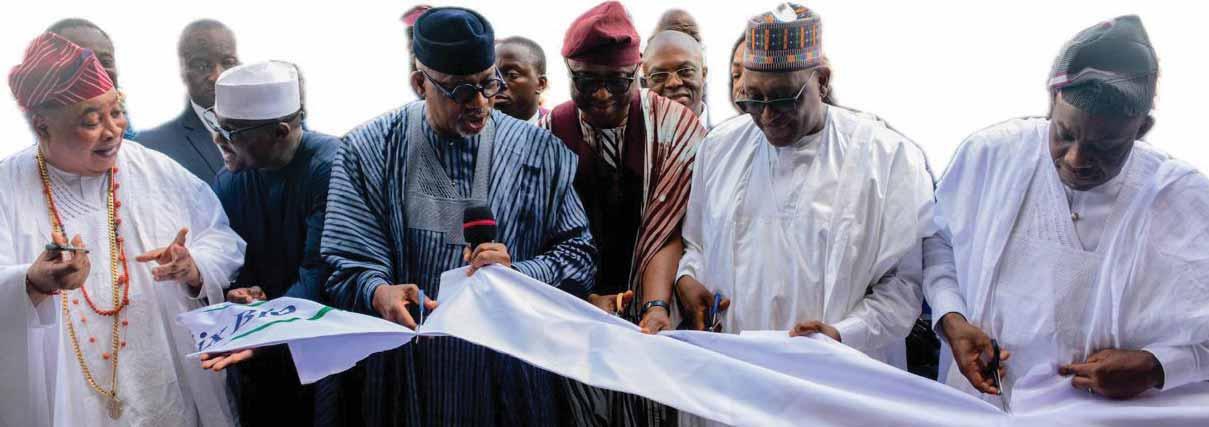
Deji Elumoye in Abuja
President Bola Tinubu yesterday welcomed new initiatives by Qatari investors to explore opportunities in the agricultural sector and assured that Nigeria remains open to strategic partnerships.
The President gave the assurance at the State House, Abuja while receiving a special envoy from the Amir of the State of Qatar, Dr. Mohammed bin Abdulaziz Al-Khulaifi Qatar's Minister of State for Foreign Affairs, Dr. Al-Khulaifi, conveyed Amir's strong interest in expanding bilateral cooperation, announcing that a high-level Qatari business delegation will visit Nigeria in the coming weeks to explore opportunities in agriculture, food security, and other critical sectors.
President Tinubu emphasised
Nigeria's readiness to build on the momentum generated by his state visit to Qatar in 2024, pledging to implement all bilateral agreements between the two countries.
He directed the Minister of Budget and Economic Planning, Senator Abubakar Atiku Bagudu; Minister of Information and National Orientation, Mohammed Idris; and Minister of Foreign Affairs, Ambassador Yusuf Maitama Tuggar, to work together to ensure the timely execution of these agreements.
He said, "To all the members of the delegation, I want to say a big thank you for coming to Nigeria. We are grateful to God for what we have experienced as partners in progress. I am also glad that the Amir of Qatar greatly remembers the issues discussed during my visit last year.
"Let me commend the brotherly relations between Qatar and
Kuni Tyessi in Abuja
The federal government yesterday said there are ongoing discussion on how 15,000 Nigerians stranded in Cameroon, Niger, Chad and other parts of the world would be returned to Nigeria safety.
Federal Commissioner, National Commission for Refugees, Migrants and Internally Displaced Persons (NCFRMI), Alhaji Tijani Ahmed, disclosed this at a media briefing in Abuja. Ahmed revealed that no fewer than six million people were displaced in Nigeria, while thousands of refugees are living elsewhere across the world.
“We have 15,000 Nigerians who want to return to the country voluntarily, and we also have not less than 100,000 foreigners living in this country as refugees. All these are the responsibilities of the commission, to give them support,” he said.
Ahmed thanked President Bola
Tinubu for the support given to the commission and the Humanitarian Affairs Ministry.
He revealed that Nigeria has concluded plans to host global leaders to discuss issues of migration and how it affects countries under the membership of the Euro-African Dialogue on Migration and Development.
Popularly known as the Rabat Process, the meeting would be the first thematic dialogue under Nigeria’s chairmanship, which is being co-chaired by Nigeria and the Kingdom of Spain, and is focusing on youth, education and innovation.
The meeting, which holds May 13th to 14th, 2025, is expected to feature discussions that would guide policy direction, shape cooperative efforts among countries of origin, transit and destination, explore inclusive policies, stronger cooperation and sustained dialogue that can reshape migration positively.
Nigeria. The Ambassador knows that I take Qatar very seriously. We are willing to go further in our bilateral relations."
The President said the Qatari government had demonstrated maturity and foresight in working for global peace and deserves commendation.
According to him, "I am proud of your efforts to bring peace and
stability to the world. I see your efforts in human development, peace and prosperity. Like you, we are sandwiched between the challenge of terrorism and helping our neighbours. We are conscious of who is our friend and those helping us to ameliorate the problems."
President Tinubu also noted ongoing reforms to streamline
Nigeria's tax system, making it easier for foreign investors to do business in the country.
"We are making efforts to reform our tax system. Going by experiences of the past and the need to depart from old ways, our reforms have been hard. I made tough decisions so that we could grow. We are gradually seeing the light at the
end of the tunnel."You can't find a better partner than Nigeria. I always follow global issues and your efforts. You have to do more in Nigeria to help fight poverty in the humanitarian area. You have done well in developing a knowledge-based economy in Qatar, but what about Nigeria?", the President explained.
Places 1,426 results under scrutiny Globacom: how our product can help students excel in JAMB, other exams
Kuni Tyessi in Abuja
The Joint Admissions and Matriculation Board (JAMB) has officially announced the release of the 2025 Unified Tertiary Matriculation Examination (UTME) results.
Following poor performance of candidates in the 2025 UTME, telecommunications and digital solutions company, Globacom, said its Examination Preparatory Service was specifically designed to help students excel in Computer-Based examinations.
Speaking at a press briefing in Abuja yesterday, Registrar of JAMB, Prof. Ishaq Oloyede, revealed that the Board withheld the results of 39,834 candidates out of the over 1.9 million applicants that sat for the exam.
According to the JAMB boss, out of the figure 96 candidates' results were withheld over exam malpractices, a decrease from 123 in the previous year.
Oloyede said the Board remained resolute in its commitment to eliminating any form of examination malpractice, adding that 1,957,000 candidates were verified to sit for the exam while 71,705 were absent.
According to him, 2,157 candidates experienced fingerprint rejections due to suspected registration infractions, a figure, he said, was far above acceptable margins and currently under investigation.
"A total of 39, 834 results remain unreleased. Of these, 1,426 results
are under scrutiny and processing," Oloyede said.
“The 2025 UTME showed the prevalence of some particular types of infractions, which suggests systemic vulnerabilities or gaps in registration and examination administration or/ and monitoring.
“The new trends observed were in the Registration and Examination processes and they were mainly in the following categories: Identity Fraud, and Biometric Fraud of Combined Thumbprint of Candidate,” he said.
Other infractions, he said, were impersonators at the point of registration with the active involvement of few CBT centres, double registration, and attempted substitution of self by candidates.
Oloyede added that 244 candidates were caught engaging in “WhatsApp runs,” subscribing to rogue groups promising leaked questions.
He said their results had also been withheld to set a stern example.
In some cases, he said, the entire syndicates colluded with CBT centres to register using multiple fingerprints.
According to him, as a result of this, 3,656 candidates with “extraneous fingerprints” have had their results withheld, and some CBT centres implicated will face sanctions.
He identified the centres as Tigh Technologies Limited, Sascon International School, Maitama, Abuja, Wudil Computer Information Technology. Wudil, Kano State and
Penta M &Amp; Centre 2, Tambuwal LGA, Sokoto, Sokoto State.
Oloyede added that 80 suspects were being interrogated by the police for their involvement in the examination malpractices and most of them would be prosecuted.
“The Board has identified the presence of extraneous fingers in the registration details of some of these candidates. This raises concerns regarding potential strategies for impersonation.
l of 3,656 candidates fall within this category. Consequently, the results of the candidates have been withheld.”
Speaking on underage candidates, he explained that following the Ministry of Education’s decision to enforce a minimum age of 16, an exception was granted for “exceptionally gifted” underage students.
The registrar said that of the 41,027 underage candidates who registered, only 467 met the high-performance criteria, with one disqualified due to examination malpractice.
He said that the Board remained committed to providing the necessary support for persons with disabilities aspiring to pursue tertiary education.
He said that for the 2025 UTME, a total of 501 candidates were successfully examined by JAMB Equal Opportunity Group (JEOG) across 11 centres nationwide.
According to Oloyede, the results are also being released but sadly,
one of them was also involved in impersonation.
The registrar also said that due to substandard performance, four centres had been delisted and blacklisted for technical deficiencies. He listed the centres as: Adventure Associate, Behind Sheshe Supermarket, Kano, Saadatu Rimi College of Education, Zaria. On how to check the UTME results, Oloyede said: "To check the 2025 UTME results, candidates should send by text message “UTMERESULT” as one word to 55019 or 66019 using the same phone number they had used to register during the registration process. Result printing will be available later." Meanwhile, reacting to the poor performance of students in the 2025 UTME, the company explained that the Glo Examination Preparatory Service trains students on practical ways to excel in Computer-Based examinations such as Joint Admissions and Matriculation Board (JAMB), Junior and Senior West African Examination Council examinations as well as IELTS.
The 2025 UTME results released by JAMB on May 5 had elicited widespread concerns as more than 1.5 million out of 1.9 million candidates whose results were released scored below 200. A breakdown of the results released by JAMB on Monday showed that 983,187 candidates (50.29 per cent) scored between 160 and 199, while 488,197 candidates (24.97 per cent) scored between 140 and 159.
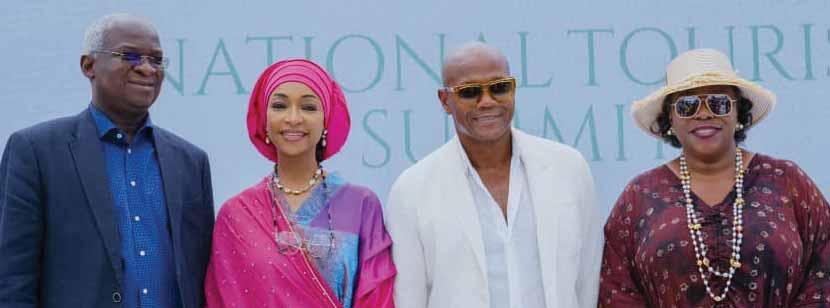
Justice Emeka Nwite of a Federal High Court in Abuja, will on June 26, decide whether the Economic and Financial Crimes Commission (EFCC), can cross-examine its own witness, Nicholas Ojehomon, in the alleged money laundering case against the immediate past Governor of Kogi State, Yahaya Bello.
Justice Nwite yesterday adjourned to the said date after taking arguments from lawyers representing the EFCC and Bello on the rightness or otherwise of the prosecution to cross examine its own witness after the cross examination by Bello's lawyer, Mr. Joseph Daudu, SAN.
Shortly after Daudu ended his cross examination of the witness, the prosecution indicated desire to cross examine the same witness
but the move was opposed by the defendant, who argued that the only option open to the prosecution was to re-examine the witness as required by law and not to cross examine the witness.
According to Bello's lead counsel, the only time the EFCC can lawfully cross examine the witness, is when it has declared him as a hostile witness.
At the resumed continuation of cross-examination, Daudu asked the witness, Nicholas Ojehomon, whether he had testified in other courts with respect to the issue of school fees paid by the Bello family to the American International School in Abuja.
The witness admitted doing so, adding that he could not mention the exact courts.
The witness, who is an Internal Auditor at the American International School, Abuja, however
Sunday Ehigiator
The Convener of the newly announced ‘Big Tent Coalition Shadow Government’, Prof. Pat Utomi, has defended the creation of the body, with remarks that it's not a rebellion, but rather a citizens’ platform for responsible democratic opposition.
He made these remarks against the backdrop of critics, including the All Progressives Congress (APC) and federal government officials, who have labelled the initiative as political theatre, unconstitutional, or rebellious.
In a statement yesterday, titled ‘In Service of Country, In Obedience to Conscience’, Utomi clarified that the shadow cabinet’s formation is not an attack on the state or a power grab, but rather “a citizens’ platform for responsible democratic opposition.”
According to him, “In a democracy, public debate is not just welcome; it is necessary. But I wish to speak today with clarity, humility, and a sense of duty to those who have sought to understand, those who have chosen to doubt, and especially to those whose daily struggles are often ignored in the noise of politics.
“Let me state this plainly,
the Shadow Government is not a rebellion. It is not a claim to executive authority. It is not a parallel structure to the state.
“Rather, it is a citizens’ platform for responsible democratic opposition—an initiative rooted firmly in the Nigerian Constitution, which grants every citizen the right to free expression, peaceful association, and the duty to hold the government accountable to the people.
“We launched this initiative not out of bitterness, ambition, or theatrical impulse—but because our country is hurting.
“Millions are hungry. Prices are rising. Businesses are closing. Security is deteriorating. And hope is thinning. Yet, amid this hardship, the space for genuine public debate and policy discourse continues to shrink.
“Opposition voices are either silenced, fragmented, or too afraid to speak. Citizens feel abandoned, and the national conversation is too often reduced to power games, not problem-solving.
“The alternative mandate, which we have embraced through the Shadow Government, is our way of saying: there is a better way; a way to think, a way to speak, and a way to serve.
said he testified in a similar charge involving Ali Bello but, he never said anything adversely against former Governor Yahaya Bello just as he had not said anything negative or adversely against him in the instant charge.
Following the closure of the defendant's cross-examination of the witness, Mr. Olukayode Enitan, SAN, who represented the commission moved to also cross-examine the same witness on
Exhibit 19, which is a judgement copy of the High Court of the Federal Capital Territory (FCT).
Enitan told the court that he was not re-examining the EFCC's witness, but cross-examining him because the document was admitted in evidence from the bar during cross examination by the defense.
"I am not re-examining him, I am cross-examining him because they brought this document," he said.
The defendant's lawyer, however,
drew the court's attention to the fact that the position by the EFCC lawyer was not only unknown but strange to law, in line with the Evidence Act.
"If you want to cross-examine your own witness, you have to first declare him a hostile witness. You cannot cross examine him based on the document," Daudu argued.
Enitan said, "I will draw your lordship's attention to Section 36 of the Constitution. They sought to tender this document, we objected and the court granted their prayer. Fair hearing demands that the complainant too has the right to examine this because Section 36 of the Constitution talks of fair hearing."
Responding, Enitan argued that he had the right to draw the attention of the court to some specific paragraphs in the document. At this point, the judge asked: "Do you have any provision of the law to support this?"
Abdullahi lauds Tinubu’s commitment to transforming Nigerian armed forces
Linus Aleke in Abuja and Segun Awofadeji in Bauchi
Operatives of the Nigeria Police Force have rescued no fewer than 25 Ivorian nationals, including Ladji Yoa Pierre, who was the subject of a formal request from the National Central Bureau (NCB) Abidjan.
Also, the Air Officer Commanding Special Operations Command, Air Vice Marshall (AVM) Usman Kandi Abdullahi, as the Nigerian Air Force celebrates its 61st Anniversary commended President Bola Ahmed Tinubu for his commitment to the development and transformation of the Nigerian Armed Forces.
A statement by the Force Spokesperson, Olumuyiwa Adejobi, an Assistant Commissioner of Police,
said the foreigners were rescued during a meticulously planned operation by operatives of the Nigerian Police Force.
He stated that this marks the third major achievement against transnational criminal activities within the span of one week, underscoring the NPF's relentless pursuit of justice and dedication to international collaboration.
According to him, "The operation was triggered by a report filed on April 23rd, 2025, by Mrs. Kaussi Amenan Marianman at NCB Abidjan, alleging that her son, Ladji Yoa Pierre, had been lured to Nigeria under false pretences by individuals who were later identified as Simon Oliver and Michael Odunga, who promised
to facilitate his travel documents to Belgium.
“Once in Nigeria, Ladji Yoa Pierre was held captive, with the abductors demanding a ransom of two million five hundred thousand CFA francs (equivalent to six million six hundred and twenty-five thousand naira).
"Upon receiving the request from NCB Abidjan, the Commissioner of Police, INTERPOL, Annex, Lagos, CP Bode Ojajuni, immediately deployed a team of trained investigators to rescue the victim and apprehend his abductors. On May 5th, 2025, the team successfully stormed the hideout of the abductors, rescuing two victims and apprehending two suspects at Osehi Hotel, located in Ado-Odo Ota, Ogun State."
Adejobi explained that a subsequent operation conducted at Ejegun Itele, Ado-odo-Ota, resulted in the rescue of 23 additional victims, including the said Ladji Yoa Pierre, and the arrest of six more suspects. He stressed that following the successful operation, Ladji Yoa Pierre was handed over to his biological mother, Mrs. Kaussi Amenan, who had travelled from Abidjan. He further revealed that the remaining 24 rescued victims had been handed over to the Assistant Comptroller General, Nigerian Immigration Service, Zone A Headquarters, Ikeja-Lagos, for further action, while the eight apprehended suspects were in police custody undergoing investigation for possible prosecution.
Alex Enumah in Abuja
The Supreme Court yesterday revoked the bail granted Lagos businessman and socialite, Mr. Fred Ajudua, by the Court of Appeal, Lagos, on December 10, 2018.
The apex court subsequently ordered his return to prison custody pending the resumption of his trial in an alleged $1,043,000 fraud case.
Besides, the five-member panel
of justices of the apex court in a unanimous judgement delivered, directed the return of the case to Justice Mojisola Dada of the High Court of Lagos State, Ikeja, for speedy trial.
The Supreme Court made the orders while delivering judgement in the appeal, marked: SC/ CR/51/2019 filed by the Economic and Financial Crimes Commission (EFCC).
While the appeal was filed in the name of the federal
government, Ajudua was the sole respondent. Delivering the lead judgement, Justice Nwosu-Iheme held that the Court of Appeal had no jurisdiction to grant the bail it granted Ajudua in the December 10, 2018 judgement having found incompetent the brief of argument filed in Ajudua's appeal against a July 5, 2018 ruling by Justice Mojisola Dada of the High of Lagos State, Ikeja, rejecting his request for pre-trial bail.
The judge further held that, having found that Ajudua's brief of argument was incompetent and proceeded to strike it out, the Court of Appeal was wrong to have still considered the incompetent brief and granted the appellant's prayer for pre-trial bail. "It is crystal clear that the lower court was on all fours with the law when it declared the appellant's brief of argument incompetent and struck it out.
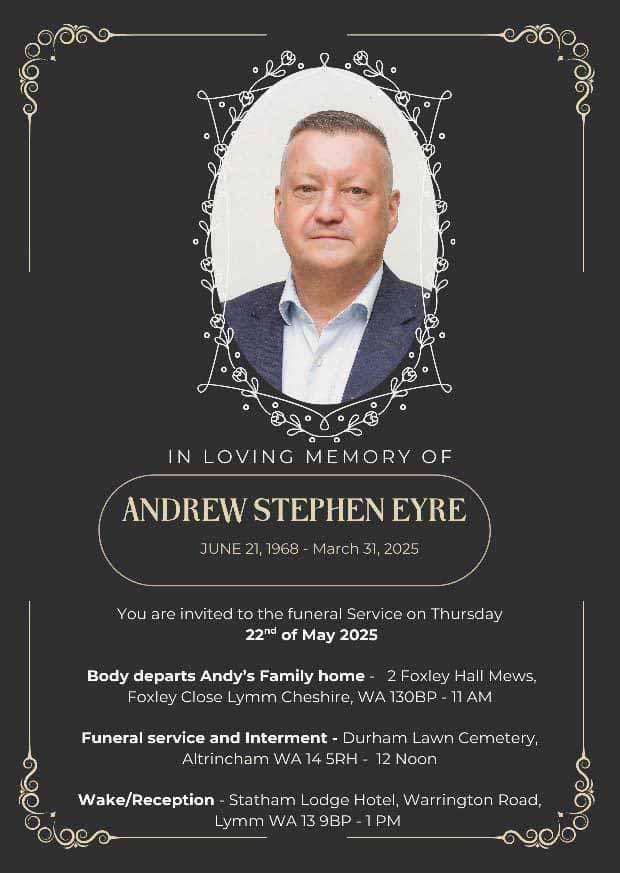
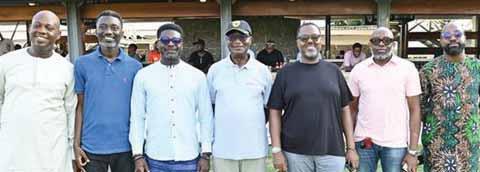
Alex
and Linus
The Attorney General of the Federation and Minister of Justice, Lateef Fagbemi, SAN, has disclosed that the federal government successfully prosecuted and convicted 226 terrorism suspects in December last year.
This was as the Nigerian military said that troops of Operation Safe Haven have arrested three suspected notorious gun runners identified as Adamu Musa, 65, Lukman Isah, 35, and Umar Jammo, 25.
Fagbemi, who spoke on Thursday at a special engagement session organised to update Nigerians and stakeholders on measures and achievements of the Federal Ministry of Justice and its agencies in the area of advancing the administration of criminal justice from October 2024 to date, noted that the feat was
as a result of deliberate efforts at improving criminal justice system in Nigeria.
The AGF stated that the Federal Ministry of Justice recorded considerable improvement in the prosecution of crimes under its purview.
"The review period also witnessed effective conduct of 237 terrorism cases from December 9-13, 2024, out of which 226 terrorism suspects were successfully prosecuted and convicted.
"These achievements came about as a result of extant policies and actions targeted at improving the capacity of our prosecutors, increasing synergy amongst prosecuting agencies, developing appropriate policy framework in collaboration with office of the NSA and other law enforcement or security agencies," Fagbemi said. Other areas of success the minister
ESG Report: MTN Nigeria Achieves 11% Emission Reduction in 2024
MTN Nigeria has declared that it has reduced its carbon emission by achieving an 11 per cent reduction in its consumption of fuel in 2024 as part of its commitment to achieve zero emission by 2040. This was declared by Chief Corporate Services and Sustainability Officer (CCSSO), MTN Nigeria Plc, Mr. Tobe Okigbo, during the presentation of MTN Nigeria’s ‘Facts Behind the Sustainability Report’, at the Nigerian Exchange Group House, Lagos, on Thursday.
MTN declared its commitment “to protecting our planet by achieving net zero emissions by 2040,” adding that “we are committed to driving digital and financial inclusion and diverse society.
“We are committed partners and stakeholders to creating and protecting value.
“We are committed to boosting inclusive economic growth on the continent.”
Okigbo said that MTN Nigeria connects millions of customers, enabling seamless communication, robust internet connectivity, and
digital solutions that power businesses and enhance lives across varying customer needs and preferences.
“Across the nation, from metropolises to remote villages, we are expanding our extensive footprint, staying true to our commitment to bridging the digital divide. Through innovative solutions and robust network infrastructure, we are driving inclusive connectivity nationwide,” he said.
Okigbo said that MTN Nigeria is partnering with NIMET to make sure that everyone that has a phone will be able to get a real time weather report.
“This will be so precise that you can actually tell a farmer the particular day he should be planting tomatoes,” he said.
Telling the story on inside MTN’s journey to lower emission and smarter network, Okigbo said that the telecom’s 2024 ESG performance highlights included 194 solar-powered rural telephony sites, 1,004,650.5 total energy consumption (GJ), 93.0 per cent network coverage, 90.1 per cent broadband penetration.
listed included the establishment of a Joint Case Team (JCT) on cyber-crime, aimed at curtailing the menace of cybercrime.
Besides, he noted that the federal government is currently reviewing the Cyber Crime Legal Framework to strengthen the national framework, aligning with emerging trends and global best practices.
The minister stated that the ministry also recorded progress in enhancing protection for victims of sexual and gender-based violence through awareness campaigns and providing access to justice for victims.
"Within the reporting period, the ministry recorded six convictions for SGBV offences, including the conviction of Peter Nwachukwu the husband of Osinachi Nwachukwu, the late gospel singer.
"The ministry has continued to take measures to ensure that Nigeria develops a child-sensitive justice system that responds to the needs of children in contact with the law, whether as victims, witnesses, or offenders. In this regard, we have continued to pursue the enactment of laws that criminalise child recruitment, while ensuring the implementation safeguards for child-offenders," Fagbemi added.
Sunday Ehigiator
An international public affairs analyst and Commonwealth Institute Scholar, Magnus Onyibe, has advised African countries and leaders to react positively to President Donald Trump’s policies.
He made the call in Lagos while delivering a lecture at the Commonwealth Institute of Advanced and Professional Studies titled: ‘Trump 2.0 and Africa: Dangers and Prospects’.
The hybrid event aimed at policymakers, business leaders, academics, and citizens from various African and Commonwealth countries who participated online and physically also featured
Anthony Kila, a renowned political economist and Vimbai Mutinhiri, an international broadcaster and journalist.
In his intervention, Onyibe pointed out that the US does not view Africa or Africans as a threat and that African leaders need to engage with the Trump administration to negotiate and reaffirm previous agreements with the United States.
“Donald Trump’s primary interest is to win back the lost ground that past administrations have ceded to countries like China,” he said.
He urged African governments and businesses to position themselves to take advantage of the new realignment and world order that Trump was creating.
“Now is the time to reflect on Africa’s underwhelming role in global trade and find pragmatic ways to reposition the continent as a vital node in the evolving global value chain,” Onyibe stated.
He added that President Trump’s sweeping tariff policies, while disruptive, are also catalytic, creating both risks and opportunities for economies willing to adapt.
The major problems Africa faces, according to Onyibe, “are energy and infrastructure, and these are issues that limit Africa's potential to succeed on the global stage.”
Onyibe, however, proposed that collaboration between African business and political leaders and their counterparts in the US can
help solve this issue, creating a win-win situation for both sides of the Atlantic.
He pointed out that before China became a success story, it faced the same situation that Nigeria is currently in, adding that today China is a major producer of energy and the fastest-growing economy in the world.
He challenged US business magnates to consider Africa a frontier for economic expansion, paralleling President Nixon’s normalisation of US-China relations.
“If Trump’s second term results in a decoupling from China, why shouldn’t Africa aspire to become America’s new strategic partner?” he questioned.
Stanbic IBTC Holdings has once again demonstrated its steadfast commitment to community development and sports excellence through its fourth consecutive sponsorship of the prestigious Lagos Polo Club Tournament.
The tournament, which was held recently, brought together elite polo players from across Nigeria and beyond, showcasing exceptional skills and sportsmanship while fostering community bonds.
The successful event featured thrilling polo matches, and other engaging activities, that captivated attendees and highlighted the sport's growing popularity in Nigeria.
Stanbic IBTC's continued support for this institution reflects its mission to drive positive social impact through strategic partnerships.
This year's tournament concluded with an impressive victory by the Tharwa Polo Team, led by their captain, Naomi Durosaro. Their exceptional teamwork and strategic play throughout the competition were truly commendable, culminating in a well-deserved triumph.
Executive Director, Corporate and Transaction Banking, Stanbic IBTC Bank, Eric Fajemisin, emphasised the transformative potential of sports in community building.
"We recognise the connective power of sports and its potential to drive community development. Our partnership with Lagos Polo Club reflects our commitment to supporting platforms that unite people to celebrate culture, passion, and shared values," Fajemisin said.
The partnership transcends mere sponsorship, catalysing cultural appreciation and community cohesion.
"This event showcases the elegance and excitement of polo and brings together a vibrant community of enthusiasts and professionals.
It reflects the sport's growing popularity and the dedication
of everyone involved," Fajemisin added.
President of Lagos Polo Club, Bode Makanjuola, acknowledged the vital role that Stanbic IBTC has played over the years.
"We are grateful for the consistent support from Stanbic IBTC. Their ongoing commitment has greatly enhanced our events, providing a valuable stage for our players to display their skills," Makanjuola said.
Makanjuola further emphasised how this strategic collaboration has significantly impacted the tournament, creating a thriving community around the sport.

ADEKUNLE ADESINA argues that the Sanwo-Olu administration has shown that having a cleaner and safer environment is possible
Land patronage from all ‘insects’ and sectors despite its status as a subnational.
It has been argued that some of the pressures Lagos has had to contend with in terms of overstretching its infrastructure emanated from its position as a land of limitless opportunities that offer hope to everyone, irrespective of social status, tribe, religion, or creed.
Successive administrations since 1999 have devised various strategies to make the city of Lagos livable for its ever-increasing residents. Since May 29, 2023, when he assumed office for a second term in office, Governor Babajide Sanwo-Olu has paid more attention to environmental regeneration. Consequently, the Ministry of the Environment and Water Resources has developed a comprehensive, multi-sectoral approach to ensure a clean, resilient, and livable city.
In the last two years, the Ministry, under the leadership of Mr. Tokunbo Wahab, has transitioned from a linear “collect and dump” waste system to a sustainable circular economy. This has led to a very appreciable reduction of the quantum of waste generated daily, especially in terms of what gets to our landfill sites.
Specifically, as part of the agenda to transition from controlled dumpsite to sanitary landfill and direct treatment of municipal waste, the Lagos State Waste Management Authority (LAWMA) has decommissioned the Epe landfill. On the other hand, Olusosun and Solous 3 landfills are to be converted to Transfer Loading Stations (TLS), while the Erekiti and Agbowa site is marked for Material Recovery MRF / residual landfills.
The State has also opened the Oke-Osho sanitary landfill in Epe with a total area of about 120 hectares, designed for solid waste management, particularly for the support of the growing economy and development of the Lekki-Epe hub.
Also, the government daily deploys not less than 15,000 street sweepers across highways, inner roads, and markets to ensure a cleaner metropolis. To sustain the momentum, the government also ensures stronger enforcement of environmental laws, penalizing illegal dumping and indiscriminate waste disposal alongside several preventive measures.
To address open defecation, the government is constructing more modern public toilets in markets, transport hubs, and informal settlements, just as the construction of an additional 150 new public toilets is ongoing alongside an additional 250 toilets being executed through the public-private partnership under the WASH initiative.
Arrangements are also being made for the public to make use of the toilets facilities located in major filling stations statewide. The same applies to eateries and supermarkets, which have all been mandated
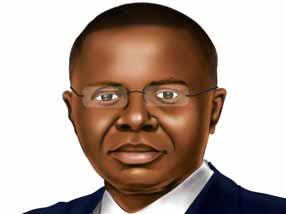


by law to provide toilet facilities in their business outlets where patrons and members of the public are allowed to walk in and ease themselves.
Several public toilets also exist across the metropolis, some are free while others charge a token. To ensure proper maintenance and good hygiene, the government regularly inspects the toilets.
All these represent genuine efforts by the present administration to ensure a cleaner city that is devoid of environmental malfeasance. It is, however, important to urge the residents to be on the same page with the government in its efforts to regenerate the environment. No matter the investment of the government toward improving the environment, without the buy-in of the people, it might not count.
On its part, the state is not relenting in its enforcement measures to ensure that residents obey the provisions of the 2017 Environmental Sanitation and Management law through the hard work of the operatives of the Kick Against Indiscipline (KAI). Many of those caught on the wrong side of the law have faced prosecution. It needs, however, to be stressed that the government is more interested in intentional conmpliance. It is vital to stress the pragmatic and decisive approach of the government in transitioning to a sustainable circular economy. This has been largely done through the banning of the sale, distribution, and use of Styrofoam food packs.
A major contributor to urban flooding and clogged drains, Styrofoam food packs have diverse negative effects on the environment. The state is already getting the buy-in of major chain stores and outlets that now give customers the option of buying bigger/reusable bags to convey their goods and retaining such for multiple uses instead of the single-use bags to which many are accustomed.
Although the move has generated uproar in some departmental stores because people just cannot come to terms with paying for carrier bags when it is supposed to be free. However, with increased sensitization, people are coming to terms with it and embracing the usage as it is obtained in many distant locations.
As part of measures to support the implementation of the plastic waste management process, the state has also gone a step further by inaugurating a Plastic Waste Fund Management Committee, comprising both government and non-governmental members.
The emergence of telemedicine platforms like Doctorcare247, CribMD, Mobihealth International, and their like, which enable Nigerian doctors and healthcare specialists to diagnose and treat patients online, represents
The principal legislation governing medical practice in Nigeria, the Medical and Dental Practitioners Act (Cap. M8, LFN 2004), was enacted in an era that predated the digital health revolution. While Section 2(a) – (d) of the Act empowers the Medical and Dental Council of Nigeria (MDCN) to regulate medical practice, its provisions fail to contemplate the distinctive aspects of virtual healthcare delivery. This legislative gap has left regulatory authorities without clear mandates regarding telemedicine oversight.
While it is important to acknowledge that Rule 22 of the MDCN Code of Medical Ethics 2004 does briefly address telemedicine, characterizing it as “a professional opportunity outcome of modern advances in computer and telecommunication technology... steadily creeping into professional practice in Nigeria,” these provisions are notably insufficient for today’s rapidly evolving digital health landscape. It instructs practitioners to “continuously assess and avoid medico-legal pitfalls” in areas including confidentiality, professional competence, the legal status of consulting specialists, equipment reliability, and continuity of care.
In their latest review in 2008, the code in Appendix 5, defined telemedicine as “the employment of telecommunications technology to give clinical attention to patients in locations remote from the doctor.” The appendix acknowledges telemedicine’s potential to “enable a large number of widely scattered patients in rural areas to have access to the expertise of the few specialists concentrated in urban locations.” Still, it fails to establish a regulatory
RESIDENTS NEED TO CHANGE THEIR ATTITUDE TO ENVIRONMENTAL ISSUES. THE EARTH, FOR NOW, IS OUR HOME. IT IS WHERE WE LIVE, BREATHE, EAT, RAISE OUR CHILDREN
framework that would encourage the necessary investment in the sector but merely focuses on simple “broadcasting of clinical information” and “interception by unauthorized persons” which is an outdated conception of telemedicine that predates the sophisticated encrypted platforms that now dominate the landscape.
When examining the operations of these platforms which facilitate remote consultations, electronic prescriptions, and digital health records, the legal incongruities become apparent. The platform’s services extend beyond traditional doctor-patient interactions into domains that existing regulations never anticipated. For instance, when Doctorcare247 connects Nigerian patients with specialists across international boundaries, questions of jurisdiction and licensing immediately arise that current legislation cannot adequately address.
It is thus suggested that three regulatory deficiencies require immediate attention. Current medical licensing regulations in Nigeria do not specifically address telemedicine practice. Section 8 of the Medical and Dental Practitioners Act establishes licensing requirements for medical practitioners but fails to delineate standards for virtual practice. This creates uncertainty regarding whether additional credentials are necessary for telemedicine providers. For entities like Doctorcare247, this ambiguity creates significant legal exposure. When their affiliated physicians provide care across national boundaries, questions arise regarding which country’s medical body has jurisdiction. The legal principle of lex loci delicti (the law of the place where the tort occurred) becomes difficult to apply when the patient, physician, and digital platform may each be located in different jurisdictions. In such scenarios, determining which court has jurisdiction and which substantive law should apply becomes highly problematic.
Perhaps the most concerning challenge is the liability standards for adverse events occurring during telemedicine encounters. When a diagnostic error occurs during a virtual consultation on Doctorcare247, determining liability becomes more difficult. Is the individual physician solely responsible, or
Similarly, in the last two years, owing to the proactive actions of the Lagos State Environmental Protection Agency (LASEPA), the government has been upbeat in the way it tackles the menace of industrial effluent discharge into the Lagos waterways. LASEPA has ensured effective monitoring and best practices in manufacturing facilities and chemical warehouses across the state.
does liability extend to the platform? How does the technological mediation of the doctor-patient relationship affect the standard of care? These questions remain unanswered within Nigeria’s current legal framework. Sections 15 and 16 of the Medical and Dental Practitioners Act establish disciplinary procedures for professional misconduct but do not address the unique considerations that arise in virtual practice. Moreover, the Act’s provisions regarding standard of care were developed in the context of in-person medical practice and may require recalibration for digital health contexts.
The regulatory vacuum surrounding telemedicine has created significant challenges for insurance coverage. The National Health Insurance Authority’s (NHIA) governance framework lacks specific provisions for telemedicine reimbursement, creating barriers to coverage for virtual healthcare services. This regulatory gap has direct implications for platforms like Doctorcare247, whose services may fall outside established insurance reimbursement codes.
NHIA Act (2022) provides general authority for determining covered services but lacks specific guidance regarding telemedicine coverage. The Act establishes broad powers for the Authority to “enforce the basic minimum package of health services” in Section 3(c) and to “promote, regulate and integrate health insurance schemes” in Section 2(a), but it does not contain any explicit provisions or guidance specifically addressing telemedicine or digital health services. The Act focuses on establishing the institutional framework, funding mechanisms (including the Vulnerable Group Fund), and general principles for health insurance coverage, but leaves the specifics of what services are covered to be determined through implementation guidelines and regulations. The absence of standardised telemedicine reimbursement codes creates legal uncertainty regarding insurance coverage obligations. When insurers deny coverage for telemedicine services provided through platforms like Doctorcare247, patients may face unexpected out-of-pocket expenses that undermine healthcare
accessibility.
Nigeria’s regulatory approach to telemedicine contrasts sharply with comparable jurisdictions that have developed comprehensive frameworks for digital health services. South Africa’s Health Professions Council has established specific telemedicine guidelines that address critical legal issues such as informed consent in virtual settings, continuity of care standards, and licensing requirements for telemedicine practitioners. These guidelines provide legal certainty that is notably absent in Nigeria’s regulatory environment.
Similarly, Kenya’s Digital Health Act (2023) created a comprehensive legal framework for digital health services, including the establishment of the Digital Health Agency (DHA) and other provisions addressing cross-border practice, data protection standards, and liability frameworks.
These regulatory approaches could inform Nigeria’s development of a robust legal framework. The United Kingdom’s regulatory model, which integrates telemedicine within existing healthcare regulations while addressing specific digital health considerations, offers another potential template. The UK’s General Medical Council has established clear guidelines regarding physicians’ responsibilities in digital practice, creating legal certainty that benefits both providers and patients.
Drawing from the above, it is obvious that Nigeria requires dedicated legislation addressing telemedicine practice. This legislation should establish clear definitions of telemedicine services, delineate licensing requirements for virtual practice, and establish standards of care specific to digital healthcare delivery. The legislation should explicitly address critical issues such as licensing requirements for telemedicine providers, including provisions for cross-border practice; standards for establishing doctor-patient relationships in virtual contexts; requirements for ensuring continuity of care in telemedicine scenarios; and protocols for handling emergencies during virtual consultations.
Okeke is a lawyer with the Centre for Social Justice (CSJ) Nigeria
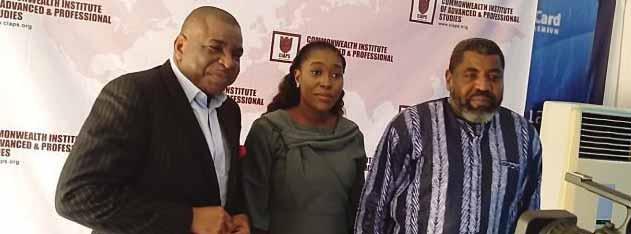
The Chairman of Geometric Power Limited, Professor Bart Nnaji, has called on the federal government to allow a transition period before placing a ban on the importation of solar panels.
Nnaji also doubted that renewable energy, especially in terms of solar, would provide an immediate solution
to Nigeria’s perennial power challenges. He, therefore, advised the government to capitalise on the abundance of natural gas resources in the country to address Nigeria’s power problems while encouraging investments in other sources of energy.
Nnaji expressed these views yesterday on the Arise News TV.
He said, “Let me say that the very idea of producing goods for
our consumption is always good to me. But do we have the capacity to produce solar panels to support what we want in Nigeria? I am not sure that we are there yet. So, probably a transition period is required.
“I do not think that the immediate banning of importation of solar panels would get us there.
“I also believe that solar energy or renewable energy is not going to be
the immediate solution.
“We have an abundance of natural gas. We should capitalise on its abundance to build power plants while at the same time encouraging the building of solar plants.”
He added: “If you have locations where solar can be better harvested and we invest in that kind of location to serve the nation that is good. If you have locations where we have natural
Deji Elumoye in Abuja and Chinedu Eze in Lagos
gas and you build power plant that is okay. But it must be transmitted.”
Commenting on the newly announced National Electricity Integrated Policy, Nnaji said that any policy that is intended to grow the power sector in Nigeria is welcomed because the current amount of power in the country is not anywhere what Nigeria should be having.
“So, as long as the integrated policy is delivering on increasing power availability aggressively then we are making progress. The intension is also true to improve transmission infrastructure and to encourage distribution companies to perform better by investments as earlier planned during privatisation. I think the policy will go somewhere,” he said.
He also emphasised that DISCOs should be credit worthy in order to encourage investments in power generations.
“GENCOs cannot sell directly to DISCOs that are not credit worthy. It is simple economics. If we desire to see more GENCOs, the DISCOs have to be credit worthy enough to pay.
“Financing wise, the federal government needs to rethink its guarantee instrument to ensure that investors are able to invest in power generation. This guarantee instrument is very important.
“But we need to have a discussion or formula on finance, how to generate enough power and on how to make the transmission and distribution robust.
Urge FG to be cautious in energy transition
Vice President Kashim Shettima yesterday flagged off the federal government's inaugural airlift of pilgrims from Nigeria to the Kingdom of Saudi Arabia for the 2025 Hajj, with a charge to intending pilgrims to ensure their conduct throughout their stay in the Holy land reflects the values Nigeria holds dear.
This was as the Federal Airports Authority of Nigeria (FAAN) has upgraded the Hajj terminal at the Murtala Muhammed International Airport, Lagos (MMIA), assuring that the facility was fully ready for the airlift of pilgrims for the 2025 Hajj operations, which begins this weekend.
The agency said that the Hajj terminal has the capacity to process about 6, 000 passengers in one day without disruption because the terminal facilities have been expanded
and upgraded, security equipment installed at various strategic areas and the terminal and adjoining buildings expanded, including a mosque fully air conditioned.
However, the grand ceremony at Sam Mbakwe International Cargo Airport, Owerri, Imo State, South-east Nigeria, which had the vice president, marked the airport's first international flight.
A total of 64,188 Nigerians are billed for this year’s holy pilgrimage.
Flagging off the inaugural airlift, Shettima applauded Governor Hope Uzodimma of Imo State for promoting unity, religious tolerance, mutual respect and inclusion by hosting the inaugural flight ceremony in his state, noting that the gesture is emblematic of Nigeria unfolding into harmony with itself as a nation.
"Let me also take a moment to commend the Governor of Imo State, Senator Hope Uzodimma, for fostering this atmosphere of
religious tolerance, mutual respect, and inclusion. His support is both heartening and symbolic of a nation coming into harmony with itself," he stated.
The vice president conveyed President Bola Tinubu's goodwill to the pilgrims, saying, "the President, in his characteristic foresight, has once again made available all the necessary resources to ensure the success of the 2025 Hajj.”
"This commitment reflects our administration’s covenant with the people to protect, to support, and to elevate every Nigerian, in every sphere of life," he added.
Shettima cautioned the pilgrims against overlooking the dignity of the Nigerian flag they are carrying, even as he reminded them that the success of the Hajj operation rests on their shoulders.
Shettima urged logistics officers to treat their duties as an assignment entrusted to them by God, just as
he maintained that they must avoid the mistake of previous exercises, and "ensure that every pilgrim departs and returns with a heart full of gratitude and a voice free of complaints.
Earlier, Uzodimma described the moment as a significant milestone in the state’s aviation history.
He said, "For us in Imo State, it's a moment of pride. The airport built over 40 years ago through communal efforts reflects our history, how far we have come. The steps we took to reposition the airport for international operations is a thing of joy to the people of Imo State and the neighbouring states."
The governor also revealed plans to also fly Christian pilgrims from the Sam Mbakwe International Cargo Airport Owerri, saying "next month, Christian pilgrims will still depart for the Holy pilgrimage from this airport and it's a testament to our inclusive governance and religious harmony."
Pharmacists under the aegis of the Association of Community Pharmacists of Nigeria (ACPN) have called on the Anambra State House of Assembly to expedite the passage of the Drug Management Agency (DMA) Bill to boost the state’s healthcare delivery service, drug availability and quality assurance.
This is one of the highlights of the communique issued at the end of the National Executive Council (NEC) consultative meeting of ACPN held in Awka recently. ACPN while commending Governor Charles Soludo for the giant strides in the development of pharmaceutical sector of the state economy; said the DMA Bill if passed into law would not only be a catalyst for effective drug
distribution and control in the state but will also impact Internally Generated Revenue (IGR) potential of the state. It said “Drug Management Agency (DMA) Act has worked very well under the leadership and direction of registered Pharmacists and Chief Executive Officers in the over 10 states of the federation where such structures are in place.’’ In the document signed by the
National Chairman, Ambrose Ezeh, ACPN also applauded Governor Soludo his commitment to building the Coordinated Wholesale Centre (CWC) at Oba “in fulfillment of the National Drug Distribution Guidelines (NDDG), which compels the relocation of the operators at the Onitsha Head Bridge market to Oba on completion of the project.
According to him, electricity distribution companies (DISCOs) should strive to be robust by investing in infrastructure in order to be able to distribute power adequately.
“If we do not do that we must continue to be having load shedding. It is a serious issue the DISCOs need to think through how they will solve the problem of the area they cover.
“It is better that they have smaller DISCOs or franchises of DISCOs so that there will be investments in them to be able to uptake power,” Nnaji said.
“As we are now, the transmission infrastructure is not going to be able to carry the required power in the nation. We need at least 100,000 megawatts of power,” Nnaji said.
He also spoke on the contentious issue of appropriate tariff for electricity, arguing that “if we want to have electricity it must be paid for. It is a matter of economics. There is no place where electricity comes free in the world. But it must be cost reflective.
“The issue is: do we want to take electricity reliably or do we have to self-generate?”
Women under the aegis of Rivers Women Unite for Sim (RWUS) have called for urgent termination of the state of emergency imposed on the state, stressing that its continuity has negatively impacted on development in Rivers State.
This came as the leadership of South-South Physically Challenged Indigenes (SSPCI) has urged President Bola Tinubu, National Assembly and state Sole Administrator, Vice Admiral Ibok-Ete Ibas (rtd), to quicken the reconciliation process for the return of a democratic order in the state.
The women at a church thanksgiving and prayers they
held yesterday, in Port Harcourt, prayed for genuine reconciliation of leaders and lasting period in the state and demanded for the lifting of the state of emergency. On May 29 celebration, the women asked: "What will be the fate of Rivers State? Will our state join other states in marking the day to also take stock as others?”
In a communique co-signed by Dr. Vivian Ige-Elenwo, Chikodi Okpara and read by a Niger Delta Activist, Ms. Ann-Kio Briggs, the women urged President Tinubu to "act by terminating this emergency rule", saying that residents of the State, "have continued to observe and bear the burden of the humongous infractions on our collective patrimony by the Sole Administrator."
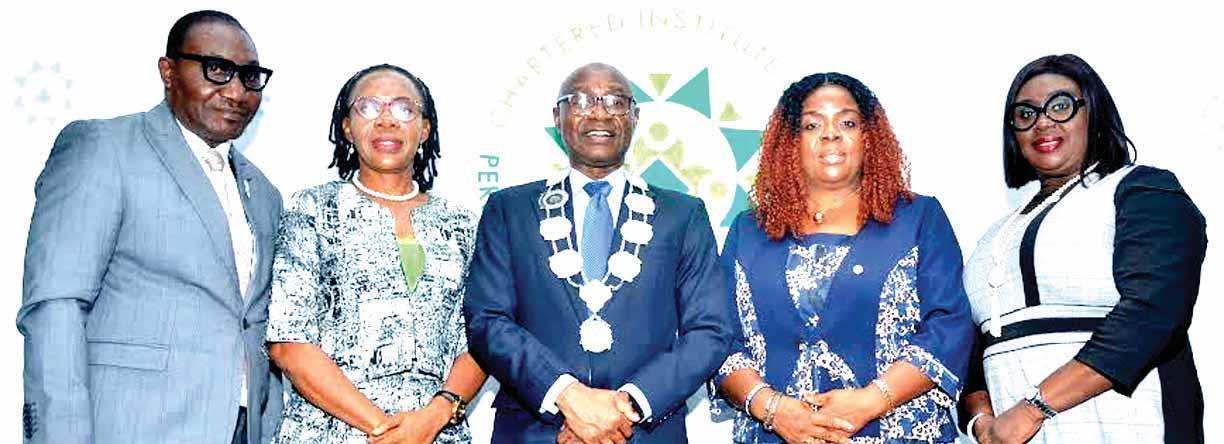
The federal government has inaugurated the Steering Committee for the Sustainable Power and Irrigation for Nigeria (SPIN) project aimed to enhance national food security, water management, and climate resilience.
The project, valued at $500 million and supported by the World Bank, aims to deliver large-scale multi-purpose infrastructure for irrigation and hydropower generation, according to the News Agency of Nigeria (NAN).
Also, the Bank is moving to advance gender-inclusive economic growth in Nigeria through a collaboration with Do Take Action.
Speaking at the inaugural meeting of the Steering Committee for the
SPIN project in Abuja yesterday, the Minister of Water Resources and Sanitation, Prof. Joseph Utsev, who chairs the Steering Committee said the initiative aligned with the Renewed Hope Agenda of President Bola Tinubu.
According to the minister, the SPIN project builds on the success of the Transforming Irrigation Management in Nigeria (TRIMING) project, which helped rehabilitate about 32,000 hectares of irrigation schemes and empowered Water Users Associations (WUAs) across the country.
“Nigeria is committed to improving its food, water, and energy security.
“Through this project, we are targeting 500,000 hectares of irrigated agriculture, 30 Gigawatts of sustainable energy, and strengthened resilience to floods, droughts, and
Adibe Emenyonu in Benin City
Edo State Deputy Governor, Mr. Dennis Idahosa yesterday debunked allegation of being a secret cult member, describing such allegation as not only malicious, but defamatory and unfounded.
Idahosa in a statement he personally signed and made available to Journalists through his Chief Press Secretary, Mr Friday Aghedo, said his attention was drawn to a circulating video on social media where one Emmanuel Agbogun falsely accused him of being a member of a secret cult.
The denial came against the backdrop of war against the activities of cult groups recently launched by the state government which culminated to demolishing buildings used for cult activities, kidnapping, ritual purposes and mass arrest of suspected members. Against this backdrop, the Edo deputy governor has threatened to institute a legal action against the said Emmanuel Agbogun for defaming his character.
He said, "In the said publication, Mr. Agbogun mentioned my name and those of other notable citizens of Edo State, alleging that we are members
of various cult groups in the state.
"I categorically state that these accusations are spurious, defamatory, malicious, unfounded, and grossly misleading. They are a deliberate attempt to tarnish my hard-earned reputation and to undermine my unwavering dedication to public service.
"These allegations also seek to distract this administration’s ongoing efforts to combat cultism and restore peace and order in Edo State.The claim that I am affiliated with any secret cult group is entirely false and baseless."
Continuing, Idahosa declared: "I vehemently deny any involvement, both past or present in cult-related activities. As a public servant and the current Deputy Governor of Edo State, I have always upheld the highest standards of integrity, transparency, and accountability in serving the good people of Edo State and Nigeria at large.
"Let me again reiterate that I consider this publication not only slanderous but also a direct attack on my character. I will not treat it lightly and will pursue all legal avenues to ensure that such defamation is addressed within the full extent of the law.
climate change.
“The project consists of four key components: Institutional Strengthening, Irrigation Modernisation, Dam Safety and
Operational Improvements, and Effective Project Management.
“It will be implemented under two models; Model 1, which focuses on federal government-managed
schemes in collaboration with interested states, and Model 2, which supports state-owned irrigation schemes”.
According to him, out of the
34 states that expressed interest in participating in the project, 27 pledged to meet the readiness criteria, and 17 states have been confirmed as qualified.
Francis Sardauna in Katsina
The Chairman of North-west Governor's Forum, Dikko Umaru Radda, has described the federal government’s signing of a $158.15 million financing agreement for the Value Chain Programme in Northern Nigeria as the transformative initiative that will boost agribusinesses in the region.
Radda, who is the Governor of Katsina State, said the federal government initiative would
create numerous opportunities for farmers and agribusinesses in the nine benefiting states of Katsina, Sokoto, Kano, Kebbi, Zamfara, Borno, Bauchi, Yobe and Jigawa.
In a statement by his Chief Press Secretary, Ibrahim Kaula Mohammed, Radda explained that the programme would sustainably reduce poverty, enhance nutrition and improve resilience of rural and vulnerable populations in the North.
Radda, who was among the northern governors that
attended the signing ceremony of the $158 million programme at the Presidential Villa, Abuja, described the development as a vital intervention that will significantly improve agricultural productivity across the northern region.
He added that the programme aligns with the Katsina State's agricultural development agenda and will complement ongoing efforts to modernise farming practices, enhance value addition
and create sustainable livelihoods for the citizens of the state. This initiative represents a transformative opportunity for our farmers and agribusinesses in Katsina State and across the entire northern region," Radda stated.
The eight-year programme is co-funded by the International Fund for Agricultural Development (IFAD), the French Development Agency (AFD), and the Government of Nigeria.
The ECOWAS Community Court of Justice sitting in Lagos has commenced hearing a fundamental rights suit filed by the Socio-Economic Rights and Accountability Project (SERAP) against the Federal Government of Nigeria.
The case, which opened before a panel led by the Court’s President,
Justice Ricardo Cláudio Monteiro Gonçalves, featured appearances by Kehinde Oyewunmi for SERAP and Okoye Princewill for the federal government.
At the start of proceedings, government counsel informed the court of a pending motion seeking an extension of time to file a response, a request unopposed by SERAP.
The judge directed both parties to proceed with oral arguments.
Mr. Oyewunmi, representing SERAP, told the court that the case was filed on January 9, 2025, to protect the rights of Nigerian citizens.
He argued that Section 24 of the Cybercrime Act has been misused by law enforcement officers to suppress freedom of expression, in violation of international human rights standards. He urged the court to declare the section incompatible with those standards, noting that SERAP had filed an affidavit and detailed factual submissions to support its claims. In opposition, government counsel Mr. Okoye said they only received SERAP’s filings on May 7 and needed time to fully review the case.
Linus Aleke in Abuja
The Police Community Relations Committee (PCRC) has appealed to Nigerians to support and collaborate with the police in the ongoing fight against crime and criminality in Nigeria.
The committee made this appeal during a youth and women's rally in commemoration of the PCRC's 41st
anniversary celebration in Abuja. The rally and sensitisation, which kicked off at the PCRC secretariat beside Jabi Park, Abuja, saw PCRC members move around Abuja, calling for support for the police in intelligence gathering and whistleblowing to tackle crime effectively.
In his address at the event, the National President of PCRC,
Ibrahim Olaniyan, said that the war against crime should not be left in the hands of the police alone, stressing that "all hands must be on deck to eliminate crime in our society." He said the committee would continue to support the police because they were aware that the service alone cannot fight crime in society.
He also revealed that the PCRC has passed a vote of confidence in the Inspector General of Police, Kayode Egbetokun, for his sterling performance since his assumption of office. PCRC National Youth Coordinator, Junard Victor, called for a good working relationship with the police and pledged total support for the IGP.
James Emejo writes that the adherence to orthodox monetary policy by the Central Bank of Nigeria has had salutary implications for the economy.
Since the CBN Governor, Mr. Olayemi Cardoso assumed office in 2023, he has made orthodox monetary policy implementation a guiding principle on which other initiatives rested upon.
Cardoso had emphasised the need to deviate from the un-orthodox monetary policy regime which he inherited from his predecessor, a practice he largely blamed for the country’s economic tribulations at the time, particularly the high inflationary conditions that threatened price stability – a key mandate of the central bank.
Cardoso, during his maiden media engagement with Arise Television revealed that loans and advances in the economy stood at about N40 trillion of which CBN interventions accounted for about 25 per cent.
According to him, such liquidity injections were responsible for the distortions including inflation in the economy as the interventions were not properly managed.
Highlighting the future of the apex bank under his watch, he declared that the CBN lacked the capacity for direct interventions, and would rather focus efforts on its primary mandate to control inflation, stabilise prices, and ensure a stable economic environment.
The CBN boss said the bank would rather partner with institutions with the capacity to manage such interventions in a way that they would not mismanage the funds but also get the desired outcomes.
Cardoso had since returned the apex bank to the orthodox monetary principles, a development that had restored confidence in the economy as well as achieved relative stability in the Foreign Exchange (FX) segment.
The orthodox monetary policy refers to conventional methods used by the CBN to manage the economy by controlling the money supply and interest rates, with the primary goal of ensuring price stability, inflation control, and economic growth.
The policy entails the adjustment of the Monetary Policy Rate (MPR), the benchmark interest rate to influence borrowing and spending as well as buying or selling government securities to increase or decrease liquidity in the banking system through the Open Market Operations (OMO), and inflation targeting among others.
The orthodox monetary policy guarantees predictability and transparency, enabling the CBN to communicate its policies clearly to helps businesses and consumers plan for the future.
The policy also helps to boost credibility and confidence by following well-established rules that boosts credibility in financial markets and reduces uncertainty.
It further leverages natural market dynamics rather than direct government intervention, often leading to more efficient allocation of resources as helps maintain price stability, which protects purchasing power and promotes long-term investment.
While orthodox monetary policy engages traditional tools used by central banks to manage the economy.
On the other hand, Unorthodox (Non-Conventional) monetary policy utilises non-traditional tools used when standard tools are no longer effective, especially during crises or when interest rates hit zero, referred commonly as a liquidity trap.
The method adopts Quantitative Easing (QE) where the CBN buys long-term assets to inject liquidity into the economy and charging banks for holding reserves to encourage lending (Negative Interest Rates).
It further uses forward guidance to promising future policy direction to influence expectations as well as targets specific long-term interest rates (Yield curve control).
Another hallmark of the unorthodox monetary policy intervention id the direct cash injections to households as witnessed during the COVID-19 crisis, a development which only served to worsen inflation, as pointed out by Cardoso.
No turning back on orthodox policy choice
Only recently, Cardoso, reaffirmed the central bank’s commitment to restoring credibility in the bank’s operations through orthodox monetary policy, transparency, and policy consistency – promising to sustain key policy reforms undertaken under his watch to address a crisis of confidence which he inherited at his assumption of office in 2023.
Cardoso spoke during a fireside chat at a high-level global forum, hosted by the apex bank in collaboration with J.P. Morgan and Nigerian Exchange Group (NGX), at the NASDAQ MarketSite in NYC, ahead of the recently concluded IMF & World Bank Spring Meetings in Washington D.C. He said, “We inherited a crisis of confidence, but we chose

a different path. We’re not turning back.”
Cardoso spoke alongside Nobel Prize-winning economist Dr. James Robinson, and Professor at the University of Chicago and Director of the Pearson Institute for the Study and Resolution of Global Conflicts, Reverend Richard L. Pearson.
Led by Cardoso, the CBN detailed its 18-month reform agenda, from monetary tightening and FX market transparency to stronger financial governance.
The central bank governor stressed that these reforms are laying the groundwork for long-term macroeconomic stability and signaling a new era of transparency and confidence.
The forum was about facts and the future, engaging critical voices, reviewing progress, and identifying what’s needed to build enduring partnerships and attract long-term capital. At the center of the engagement was a clear goalreasserting the CBN’s role as a credible, trusted institution, respected globally and committed to excellence at home.
Deputy Governor, Economic
Directorate, Muhammad Sani Abdullahi, provided macroeconomics update, stating that FX turnover had risen sharply, amid early disinflation signals. He said the country’s external reserves were strengthening, noting that a marketdetermined exchange rate and a transparent, rules-based policy framework, confidence was gradually being restored in Nigeria’s economy.
The CBN presentation highlighted government’s focus on growing non-oil revenues; driven largely by implementing tax reforms and the National Single Window Revenue transformation through the implementation of tax reforms.
The apex bank also showcased the pursuit of bold tax reforms that will prioritise non-oil revenue sources which is crucial to mitigating susceptibility trade shocks.
In January, Cardoso declared that despite Naira’s volatility in recent years, the international community believed the currency was now reflective of its real rate and currently more competitive, noting that recent reforms in the nation’s Foreign Exchange (FX) segment, particular the adoption of orthodox method of operations have continued to attract foreign investors into the economy, vowing that the monetary authority will do everything possible to ensure that current inflows continue.
Speaking at the 2025 Monetary Policy Forum with the theme, “Managing the Disinflation Process” in Abuja, the
CBN governor noted that foreign investors would always be willing to invest in an environment where returns are attractive, and where monetary policy can be more transparent and predictable.
The CBN governor further stressed that cautious optimism was emerging globally around potential improvements in capital flows to emerging markets, as advanced economies transition toward monetary easing.
Cardoso however, noted that Nigeria’s ability to attract these inflows will depend on investor confidence in our domestic reforms, particularly those ensuring macroeconomic stability and delivering positive real returns on investment, pointing out that without the decisive policy interventions undertaken by the bank to reign in rising prices, inflation could have reached 42.81 per cent by December 2024.
The CBN governor noted that the liquidity injections associated with unorthodox monetary policies, particularly since the COVID-19 pandemic, had created significant overhang, adding that while these measures were intended to cushion immediate shocks, they did not translate into commensurate productivity growth, fueling inflationary pressures and heightened foreign exchange volatility.
He said excess naira liquidity in the system had amplified demand-driven inflation, further exacerbated by supply-side constraints stemming from structural deficits.
Nonetheless, he said the country had turned a corner, pointing out that disinflation was within reach.
He said, “However, we must remain committed to bold, coordinated policy measures to consolidate our progress”, adding that for inflation to be defeated, it required serious collaboration between the fiscal and monetary side.
The central bank governor said these dynamics underscored the importance of a disciplined and coordinated approach to monetary policy to restore stability.
However, the Monetary Policy Committee (MPC) had in response initiated a tightening cycle using orthodox approaches.
Throughout 2024, the bank implemented several bold policy measures across six MPC meetings, including raising the Monetary Policy Rate (MPR) by a cumulative 875 basis points to 27.50 percent, increasing the Cash Reserve Ratio (CRR) of Other Depository Corporations (ODCs) by 1,750 basis points to 50 percent, and adjusting the asymmetric corridor around the MPR.
Cardoso stressed that despite global and domestic headwinds, the CBN’s commitment to price and monetary stability had yielded measurable progress.
According to him, inflation erodes purchasing power, discourages investment, and exacerbates inequality, adding that managing the disinflation process requires a careful balance of policies that mitigate short-term costs while anchoring long-term stability.
Furthermore, and in credit to Cardoso, international ratings agencies have issued positive ratings on Nigeria since the return of monetary policy to orthodox regime.
Orthodox approaches are seen as fostering long-term economic health, minimising boom-bust cycles and is viewed as a sign of responsible economic management, which is crucial for a strong sovereign credit rating. This is because stable policy attracts foreign investment and encourages financial market development, both viewed favourably by rating agencies.
Cardoso stressed that the country’s approach had remained firmly rooted in orthodox monetary policies, a stance that was consistently communicated to market participants.
Specifically, the CBN governor said under his watch, the apex bank had done a great deal in restoring credibility back to the central bank and regaining the trust in the institution, a development that had attracted positive ratings from global rating agencies.
He said, “We are not there yet. It is a continuum. But without the success of rebuilding back the trust, all the other things that we want to credit ourselves with having done or wanting to do will not happen.”
The country experienced positive ratings by international agencies when it adopted orthodox monetary policy because of its transparency, investor confidence, and economic stability, while unorthodox approaches attracted ratings downgrades, capital flight, and credibility loss.
Tosin Clegg
Rumours have emerged that Afrobeats sensation, Wizkid has cancelled four of the 11 venues for his upcoming North American tour.
This has sparked a lot of reactions among his fans and those of the opposite side. Many took to the comments section of an X account, AlbumTalksHQ, who had earlier posted on this sudden development.
The post shared had stated that, “Four out of 11 dates have been reportedly cancelled on Wizkid’s upcoming North American “Morayo Live Tour”. State Farm Arena, Atlanta, MSG,

New York, Scotia Bank Arena, Canada and CFG Bank Arena, Maryland. The tour is still scheduled to go on in Germany, Netherlands and France.”
Although Wizkid is yet to say anything about this, from all of the conversations online, many are curious to know why this development. Even though there are hearsay there isn’t still no strong reason to tell as to why this might have occurred. Fans of Wizkid have thrown in support of their favourite but many who are not fond of him have peddled reasons such as low ticket sales, a drop in the streaming of his music, his lack of promotion of the slated tour dates among other factors.
But amidst all these, an official statement would help clarify the situation and make his fans understand clearly why they had to be cancelled. Because the subtle flow of the rumors is steadily growing and more opposing fans are using the opportunity to propagate false narratives. Wizkid, as we all know, is known for maintaining a calm and composed demeanor, especially when controversies arise or when he’s dragged into public conversations. He rarely addresses issues directly, choosing instead to let his music and has become a signature trait, earning him a reputation for staying above the fray while still commanding massive attention and respect in the industry.

Poshyankee Entertainment has with the launch of TAP TAP Got Talent, the electrifying live talent hunt show giving a platform to Africa’s next generation of superstars.
for aspiring talents hoping to move from obscurity to stardom.
More than just entertainment, TAP TAP Got Talent is a bold move by Poshyankee Entertainment to give back to the community, creating real opportunities for young talents to shine on a global stage.
True to the company’s ongoing commitment to philanthropy and youth life-changing rewards: N500,000 for the second runner-up, N1,000,000 for the all-expense-paid trip to Qatar for the grand winner. Tap Tap
Streaming live every Sunday night on TikTok, TAP TAP Got Talent is already making waves uncovering raw talents from singers, dancers, comedians, instrumentalists, painters, magicians, creators, and more. The show is quickly becoming a beacon
K‘Uncle
With the release on the
of May, he would also the CFG Bank Arena in Baltimore, followed by stops at major U.S. venues including the Smart Financial Center in Houston, Fox Theatre in Atlanta, and The Wiltern in Los Angeles.
The maiden edition of the International Sales and Distribution Executives (ISDE) programme, meant to address a critical gap in the entertainment industry has been inaugurated by Trino Motion Pictures in partnership with the Nigerian International Film Summit (NIFS).
The initiative addresses a pressing need in the creative industry, where talented individuals produce high-quality content but often lack the monetise their work globally.
Twelve talented participants were inducted at the ISDE programme and induction held at Parkview Estate, Ikoyi, Lagos.
The participants include: Adetayo Adebowale, Dr. Sherif Adekunle, Ehinomen Azeta, Uneke Ekene, Faustina Okomayin, Lucy Adikwu, Mercy Akumute, Nneamaka Nwadei, Olatubosun Olasimbo, Precious lroagalachi, Daleshawn Butler and Temitope Sanni.
Managing Director of Trino Motion Pictures, Uche Okocha, said the programme was crafted to equip professionals with expertise in international sales, aggregation, licensing, and distribution.
Known for his versatility, infectious melodies, and lyrical depth, the multiaward-winning artistE has generated massive buzz with the announcement of the new project, signaling what promises to be another major milestone in his career. Fans can look forward to high energy performances, new choreography, and a curated setlist that brings Uncle K to life.
The tour will then expand across continents, with performances planned in the United Kingdom, Canada, Australia, Europe, and Africa, leading up
According to him, the training programme was conceived after the company’s two-year experience attempting to handle sales and distribution roles.
which was a lack of structured pipelines for professionals and inadequate training facilities, which prompted the development of the programme.
Okocha, who underscored the importance of identifying potential, building capacity, and
IShedrach and Ozioma have just concluded 30 consecutive days of banquets to celebrate the birth of their twins, Naku and Ziza.
Running from March 31 to April 29, 2025, this unprecedented “30 Days of Thanksgiving” has transformed a personal miracle into the launch of a new cultural tradition—one rooted in gratitude, unity, and a vision of peace and prosperity for Africa.
worldwide can expect a dynamic showcase of his new material alongside beloved classics, promising an unforgettable live music experience.
From Woju to Buga, and more recently Twe Twe and Marhaba, his music has not the direction of Contemporary African music. And with this new album around the corner fans can only but expect a great alignment of musical genius, lyrical excellence and captivating beats translated into danceable melodies.
industry, said “The initiative addresses a pressing need in the creative industry, where talented individuals produce high-quality content but market and monetise their work globally.”
According to him, the training that would feature both virtual and physical classes would run for six months.
trained on the nitty-gritty of international sales and distribution for all formats: scripted, unscripted,
“We didn’t give birth to ordinary children,” our family—and for the world. We’ve planted the roots of a culture of thanksgiving that will last through our generation.”
Each evening, friends, family and neighbors and associates gathered to share meals that honored Nigeria’s rich heritage alongside dishes intimate expression of gratitude grew into a vibrant outpouring of community spirit, with loved ones traveling from near and far to bear witness to a living testament of
Speaking about the vision behind the show, the CEO of Poshyankee Entertainment emphasized the importance of building platforms that empower upcoming talents and continuously supporting less privileged communities. “We believe in the power of dreams,” she said. “TAP TAP Got Talent is not just a show, it’s a movement to uplift, empower, and change lives.”
energy, drawing impressive performances and massive live audiences. As the competition heats up, viewers will be tuning in every Sunday to witness unforgettable moments, surprising talents, and inspiring stories.

“This will be for six months and will feature international executives as resources persons that have been in the sales and distribution space for at least over 15 years.
“We are going to try and have a mix of the French territories, some of France, the UK, and Nigeria.
“The real goal is to train the next generation of professionals that can sell our content to a global audience, which is very important because we found that there are no training platforms for such.
After ten years of prayerful waiting, the twins arrived on March 21, 2025—coinciding with Ozioma’s 39th birthday—capturing hearts across social media and faith communities. By extending their celebration across an entire how new life is honored, proving that true thanksgiving knows no time limit.
curated highlight reel of the month’s events, a collective moment of thanksgiving as the sun set over Lagos—sealing a celebration that will be remembered for generations.
Nasir Ramon Olanrewaju
Owing to its unique and complex nature, navigating Africa’s volatile business landscape requires resilience, vision, and a strategy built on long-term commitment.
In a continent where business mortality rates are usually among the highest globally, only a few institutions have demonstrated the staying power and adaptability needed to survive and thrive.
The United Bank for Africa (UBA), which prides itself on being Africa’s Global Bank, is a remarkable example of an organisation with such resilience.
From its origin in 1949 as the French and British Bank of West Africa to its transformation through a strategic merger with Standard Trust Bank in 2005, UBA has truly evolved into a truly Pan-African and global financial powerhouse in its over seven decades of operation and with presence in 24 countries and active operations across Africa, Europe, America, and Asia, the bank continues to retain its position as Africa’s brand with global influence.
Last Lear, the bank commenced a year-long series of activities to mark its 75th anniversary, and one of the flagship events was the Group Chairman’s Forum, which was held between April 22nd and 23rd, 2025, at the iconic Transcorp Hilton in Abuja.
Conceived by UBA’s Group Chairman, Tony Elumelu, the Forum has become a strategic platform for charting the bank’s future. This year’s edition convened over 120 senior stakeholders ranging from chairpersons and Chief Executive Officers of UBA’s 24 subsidiaries to top executives and board members - focused on reviewing performance, aligning priorities, and reinforcing the bank’s customer-first philosophy.
Addressing participants at the opening of the two-day session, Elumelu said, “This gathering is for knowledge sharing, group integration and, re-strategising mechanisms with the overall aim of putting UBA Group on firm standing to actualise its goals and targets for the financial year and the foreseeable future.”
Continuing, he said, “Throughout our over seven decades, our group has demonstrated a capacity to adapt, to transform and to disrupt, establish, further and uphold fundamental responsibility to our customers and stakeholders.”
The Forum afforded participants the opportunity to critically review the bank’s performance, discuss strategic initiatives and chart the course for the future. Discussions were built on interactive panel sessions moderated by the Group Chairman and key issues around UBA’s International and African reach; brand building, projection and reputation management; Customer Experience; and Governance and Risk were highlighted.
The first day kicked off with a comprehensive review
of the bank’s financial performance in 2024. This was followed by an engaging panel session with key stakeholders in Risk and Corporate Governance. The first day wrapped up with another powerful panel featuring leaders from UBA Africa, highlighting regional perspectives and strategic direction.
The second day was more interesting at the Group Chairman Forum as top players discussed international footprint and the power of brand building and reputation management.
The Forum came on the heels of a very successful 2024 financial year, where the bank not only recorded excellent performances across key indicators, with its ex-Nigerian operations contributing seventy percent of the profit.
Participants were unanimous in their decision to do all in their power to accentuate the Bank’s position as the leading Pan-African Bank across all key indices, including brand equity, human capital, customer service and profitability, whilst also inculcating a culture of responsiveness, with zero tolerance for any regulatory infraction across all its subsidiaries.
Constant in Elumelu’s intervention at the discussions was positioning UBA for leadership in the banking space in Africa and global space, within the short and medium term.
“Banking is a marathon and not a sprint, we are building to last, and our drive is for long term, bringing rewards to our Shareholders,” Elumelu constantly retorted while urging participants to continue to live up to the expectations.
Elumelu proffered that the bank’s success would be driven by adherence to strong corporate governance, execution of established rules, principles, and procedures, improving speed of execution, operational efficiency and fraud mitigation and most importantly, making the customer the centerpiece of what UBA does.
The Vice President, Senator Kashim Shettima, who spoke at the dinner organised to celebrate the Bank’s 75th Year Anniversary attributed the 75-year banking growth of UBA to innovation and resilience despite economic challenges.
“Seventy-five years is not something you pick up at a supermarket. It is earned. It’s through risks and calculations, through storms and sunshine, through mergers and acquisitions, and through the brainpower, resilience and courage of those who believe in its promise of a new world. That is what leadership means,” he said. He added, “The United Bank for Africa, or simply UBA, is not what it is because of the age of its ideas. It is what it is because of the attention it pays—attention to innovation, attention to emerging markets, attention to shifting dreams, and attention to the changing contours of generational ambition because it is led by
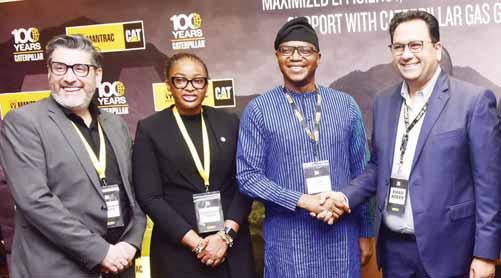
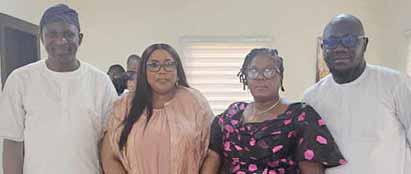
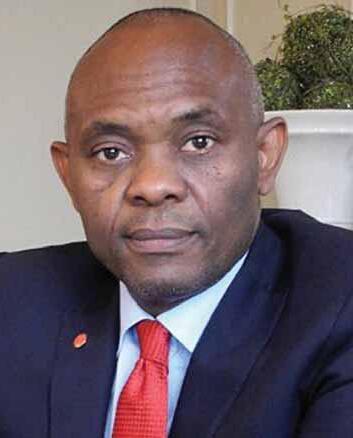
people who do not just manage capital, but manage curiosity.”
A cursory glance at the full-year results revealed that it was a very strong and rewarding 2024 for the bank, as it generated a gross revenue of N3.2 trillion and profit after tax of N767 billion. It successfully sustained its deposit mobilization efforts, growing total deposits by 42 percent to N24.6 trillion. UBA’s loan book expanded by 35 percent to N7.5 trillion, demonstrating its commitment to fund growth, thus contributing to Nigeria and Africa’s economic transformation. UBA Group maintained a well-structured and diversified balance sheet with total assets and Shareholders’ Funds closing at N30.3 trillion and N3.4 trillion, respectively.
UBA, with a global staff of over 25,000, is a proud supporter of businesses, governments, and consumers across Africa and globally, serving over 45 million people in 24 countries across Africa, Europe, America, and Asia. Nasir, the Group Head, Media and External Relations, UBA, wrote in from Lagos
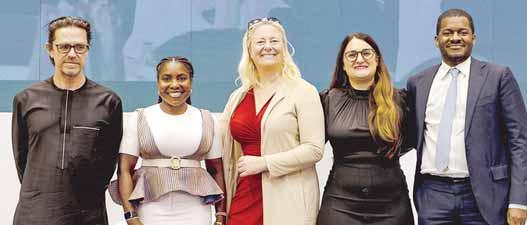

The ‘Reserved Seats for Women Bill’ is a crucial piece of legislation that addresses the gross underrepresentation of women in Nigeria’s political landscape. With women making up nearly half of the country’s population, it is laughable that they occupy only 3.8 per cent of the country’s current federal legislative seats. Hence, in this report, Sunday Ehigiator brings to the fore how celebrities, including Nollywood actors, journalists, influencers, etc., are championing a call for the passage of the bill, while highlighting its potential benefits for the Nigerian society.
Despite Nigeria’s near parity in voter registration by gender, women’s representation in electoral politics remains alarmingly low, prompting House of Representatives Deputy Speaker, Benjamin Kalu, to champion the ‘Reserved Seats for Women Bill’.
This legislative push aims to increase women’s participation in parliament, recognising that democracy’s strength hinges not only on elections but also on inclusivity.
Speaking at the public presentation of the National Women Leaders Forum’s operational guidelines, Kalu said, “When half of our population remains underrepresented in the halls of power, our democracy is not just weakened, it is incomplete.”
In Nigeria, women’s representation in competitive politics is severely hindered by cultural and patriarchal norms, exacerbated by voter bias, societal distrust, and limited resources, resulting in an abysmal representation of women in politics despite over two decades of democratic practice.
Currently, women’s representation in the parliament is heavily skewed in favour of men, with a worrying decline: the 10th National Assembly has seen a 19 per cent drop in women’s representation compared to the previous assembly, with women occupying only 3.6 per cent of Senate seats and 4.7 per cent of House of Representatives seats.
Sequel to this, celebrities, including Adesua Etomi-Wellington, Ini Dima-Okojie, Banky Wellington, Osasu Igbinedion Ogwuche, Seun Okinbaloye, Alhanislam Hamzat Lawal, Toolz, and Aproko Doctor, have lent their voice in support of the passage of the bill.
In in a jointly signed statement, titled ‘Stars Unite: It’s Time to Pass the Reserved Seats for Women Bill’, they stated: “Nigeria is a global force, home of Afrobeats, Nollywood, a surging tech scene, and the very future of Black excellence. We are bold, creative, and unstoppable. But one part of our story remains painfully unfinished: the political exclusion of Nigerian women.
“Right now, Nigeria ranks near the bottom of the world for women in parliament. Just 18 out of 469 federal lawmakers are women.
That’s 3.8%—in a country where women make up nearly half the population. Let that sink in. This isn’t just a gender issue. It’s a development emergency.”
They noted that: “Nigerian women are not on the sidelines of society. They are its engine. They nurture families, heal communities, grow food, build businesses, lead classrooms, and drive our culture and economy forward.
“Women lead 43 percent of our small and medium enterprises, the backbone of job creation and innovation. They are our caregivers, peace builders, problem solvers, and often the first responders in times of crisis.
“Yet in politics, they are locked out of the rooms where decisions about their lives, families, and futures are made.
“Around the world, nations that prioritise inclusive governance are thriving. Rwanda rebuilt from genocide by putting women at the centre of power—today, women hold 61 per cent of seats in its lower house.

“That’s not symbolic. It’s strategic. Rwanda now leads in economic growth, education, and trust in government.”
Furthermore, the pointed out that, “Scandinavian countries, Norway, Sweden, Finland—show us that when women lead, sustainability, equity, and innovation follow. They don’t just have seats at the table. They’re shaping the future.
“So what’s holding Nigeria back? Centuries of cultural bias. Political violence. Systemic exclusion. But these barriers can be broken, and the Reserved Seats for Women Bill is the hammer.
“The bill guarantees a minimum number of seats for women in both federal and state legislatures. It’s not about handouts, it’s about balance. Nigerian women aren’t asking for favours. They’re demanding equal footing in a democracy they help sustain every single day. “Here’s what the data tells us: when women lead, communities thrive. Female lawmakers are more likely to champion education, health care, maternal well-being, environmental stewardship, and anti-corruption laws. Countries with more women in leadership are more stable, more prosperous, and more just.
“Meanwhile, Nigeria is still flying with one wing.
According to the World Economic Forum’s 2023 Gender Gap Report, Nigeria ranks 125th out of
146 countries in gender parity, behind Ghana, Kenya, South Africa, and even countries like Iraq. That’s not just embarrassing. It’s unacceptable. We can, and must, do better.”
According to them, “passing this bill will change everything. It will send a powerful message to every Nigerian girl: You belong in the room where decisions are made. It will bring more voices, more lived experiences, and more wisdom to the table. It will unlock Nigeria’s full potential, not just for growth, but for justice, innovation, and sustainability.
“We’ve seen what Nigerians can do when we rise as one, through Ebola, COVID, and democratic transitions. We’ve seen the strength of our women in markets, in hospitals, in homes, and movements. Now is another defining moment.
“To the National Assembly: Pass the bill. To the President, Governors, and party leaders: Back it. To every Nigerian, demand it.
“We can’t afford to sideline half our talent. Nigerian women are already leading in boardrooms, in classrooms, in our communities. It’s time politics caught up.
“Let’s throw the doors open. Let’s build a democracy that looks like Nigeria. Let’s lead the continent not just in culture and innovation, but in justice, equity, and power. The time is now.”
Ogun State Governor; Dapo Abiodun has commissioned Nigeria’s first large-scale rapid diagnostic test (IVT) production facility which was also described as the second of its kind in Africa.
The company, CODIX BIO Limited, an In-vitro Diagnostic(IVD) factory is located along the Sagamu expressway, with the scope of production that concentrates on the manufacturing test kits for HIV, Malaria, as well as Hepatitis B and C.
Speaking at the event yesterday, Abiodun expressed delight over the giant strides, adding that with the capacity of the facility to produce about 147 million test kits annually, the factory marks the dawn of a new era in bio-medical innovation in the country.
He said: “Today, we open a transformative chapter in Nigeria’s Health Care landscape with the official commissioning of CODIX BIO Limited “It is a bold declaration that Nigeria is ready to strengthen its public health infrastructure and significantly reduce our dependence on imported diagnostic tools.
“We appreciate that this initiative is indeed aligned with the Renewed Hope Agenda of our President, Asiwaju Bola Ahmed Tinubu who is committed to reforms towards unlocking the healthcare value chain through local manufacturing firms to reduce importation.”
Abiodun added that over 90 percent of diagnostic kits used in Africa are being imported, mainly from Europe, Asia and North
America, according to WHO report in 2023, noting that the test kits offer a game-changing tool in early detection and also serve as a desirable instrument for effective disease management.
He said that the investment by CODIX BIO Limited speaks volumes of his administration’s economic vision, adding that the investment by CODIX BIO would help the country safe viable foreign exchange, create jobs, build industrial capacity, create employment and improve health delivery.
The Minister of Health and Social Welfare, Prof. Ali Pate Muhammad, commended Abiodun for the massive turnaround in the area of infrastructure across the state, saying the state government has found the magic source to connecting talent with industrialisation, which he said would fuel growth in the area of medical manufacturing.
“ I have to appreciate what I have seen in your state in terms of industrialisation, the convergence and the ecosystem you are trying to create.
“I came from the airport and to see what is going on around and what I have heard about it, I think, you’ve played an incredibly viable leadership in this direction and I commend you and your team for what you have done.
“ I hope other states, including my state can learn a few things from what you have done in industrialising Ogun State,” he said.
Also, the Minister of Education, Dr. Tunji Alausa, in his speech commended Abiodun for the good job done by his administration at the Gateway International Airport as well as making the business environment friendly for investors in the state.
Alausa charged CODIX BIO Limited to look at the possibility of using their factory as a training ground for the next generation of bio-medical engineers, laboratory scientists, pharmacists and quality assurance professionals, encouraging the factory to deepen partnership with universities, polytechnics and research institutions not only to strengthen their workforce but to help develop the health innovation ecosystem.
In his earlier emarks, the Chief Executive Officer, CODIX BIO Limited; Mr. Sammy Ogunjimi, said that the factory is designed to be one of the largest and most advanced in Africa,adding that the goal of the company is to serve not only Nigeria, but also the ECOWAS region and the entire continent of Africa
“In Geneva, this factory, CODIX BIO is being announced as the first factory selected by the partnership of WHO, SD Biosensor and MPP under the WHO H-TAP program to support regional manufacturing of rapid diagnostic test kits in Africa, what this means is that the factory is now officially within the scope of WHO and other partners for technical assistance,” he noted.
GovernorAlexOtti’srecentappearance on Arise TV has continued to receive widespread acclaim from a broad spectrum of wellmeaningNigerians.Hisarticulate delivery,visionaryleadership,and clear policy direction during the interview won the admiration of many. However, as expected,hisgrowingpopularityhasunsettledasmall band of critics—largely displaced loyalists of the formerPDP-ledadministrationinAbiaState.These individuals, having lost access to public resources, nowoccupythemselveswithunrelentingandoften baselessattacksagainsteverymovetheGovernor makes.
Leading this group is John Okiyi Kalu, who has assumedtheroleofchiefcriticandunofficialopposition spokesman. Known for his flair for propaganda, Okiyi Kalu previously served as Commissioner for Information under the unpopular administration of Dr. Okezie Ikpeazu. During that tenure, he was more preoccupied with media optics than real development—crafting a misleading narrative of progress while the state visibly deteriorated.
Theso-calledinfrastructuraldevelopmentunder thatadministrationwas,atbest,cosmetic—largely limitedtopressreleasesandsocialmediapromotions. Meanwhile, pensioners suffered in neglect, civil servantswereowedsalaries,andessentialservices collapsed. Public funds were grossly mismanaged, leavingbehindatrailofrotandunfulfilledpromises.
Since the historic electoral shift of February 22, 2023,whichdecisivelyendedPDP’sprolongedgripon thestate,thelikesofJohnOkiyiKaluhavestruggledfor relevance.Theirnewpastimehasbecomerelentless criticismofGovernorOtti’sadministration,nomatter howlaudablehisinitiativesmaybe.Everypolicy,every success story—especially those celebrated by the people—becomesanobjectofunwarrantedattack.
This pattern was particularly evident following Governor Otti’s May 2, 2025 interview on Arise TV.
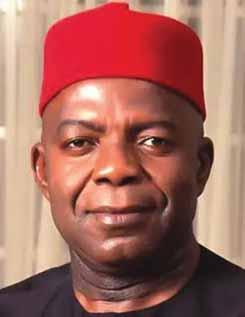
In what was clearly a masterclass in leadership and governancecommunication,theGovernorexplained how his administration has significantly improved thefortunesofAbiaState.Heoutlinedhow,through prudenteconomicmanagementandinnovation,his government has cleared billions in inherited debt and improved performance across key sectors suchassalarypayments,infrastructure,healthcare, education,sanitation,security,investmentinflows, and job creation. Perhapsmostimpressively,thesegainshavebeen achieved without the burden of borrowing—unlike the previous government’s heavy reliance on loans. Governor Otti’s approach reflects a sophisticated graspofpracticaleconomics,andtheresultsareevident:Abiahasmovedfromtherearofdevelopment indices to become one of Nigeria’s fastest-growing states.
Unsurprisingly, this success has provoked a coordinated smear campaign by Okiyi Kalu and his cohorts. Despite their poor track record, they havetakentosocialmediaandevensecuredairtime on Arise TV’s “Right of Reply” segment to peddle half-truths and distortions.
Their criticisms, though weak and unconvincing, appear to revolve around three main talking points—one of which concerns the New Government House. They argue that Governor Otti should have immediately moved into the building, which was hurriedly refurbished and commissioned just before they left office.
To understand this issue, a brief background is necessary. The project was initiated by former Governor T.A. Orji, modeled in the style of a 17thcentury European palace. Despite the grandeur, the structure was built at a time when Abia State sufferedacuteinfrastructuraldeficits.Manycitizens questionedthewisdomofcommittingbillionsofnaira toasingleedificewhileroads,schools,hospitals,and basic amenities across the state were in shambles.
When Governor Ikpeazu assumed office in 2015, he neither completed the Government House nor investedinthesurroundingarea—knownastheNew Government Station Layout. This neighborhood lackedaccessroads,drainage,electricity,andwater. The situation was so dire that government offices, includingtheStateSecretariatandCommissioners’ quarters,operatedwithoutbasicinfrastructureand were often engulfed in darkness.
Okiyi Kalu and many of his fellow critics lived and worked in this environment, doing nothing to improveitduringtheireight-yeartenure.Thedecay wascomprehensive—schools,roads,hospitals,and otherpublicassetsallfellintodisrepair.TheoldState Secretariatwaseventuallyabandoned,becominga dumping ground for refuse and even human waste.
Then, in a last-minute move that many perceived ascynical,theoutgoingadministrationgavetheuncompleted Government House a cosmetic facelift andhastilycommissioneditjustdaysbeforehanding overtoGovernorOtti—apparentlyhopingtopressure
him into occupying it. But Governor Otti, refusing to accept this “Greek gift,” a decision many Abians considered a more strategic one. Insteadofpouringadditionalfundsintoanimpracticalstructure,hisadministrationredirectedpartofthe ₦800milliondemandedbythecontractortodevelop critical infrastructure in the surrounding area. This has transformed the once-forgotten Government Station Layout into a livable and functioning part of the capital.
Incontrasttothefailuresofthepast,GovernorOtti’s governmentismarkedbyforesight,accountability, andpeople-focuseddevelopment.Thenoisydistractionsfromdiscreditedformerofficialscannotmask the visible progress being made across Abia State. The facts are clear. The people are watching. And no amount of political bitterness can reverse the wheel of progress already set in motion.
In less than two years, Governor Alex Otti has made transformative strides in Abia State. He has rehabilitated the Commissioner’s Quarters, reconstructedthelong-abandonedOldSecretariat, and energized both secretariats. Access roads have been built throughout the area, internet infrastructure now serves public sector buildings, and numerous public structures have been rehabilitatedandmodernized.Theseachievements reflect the expectations of Abians — results, not rhetoric.
It would have been inappropriate for Governor Otti to reside in the so-called New Government House, a relic of a feudal mindset. That structure contradicts the republican spirit and values of the Abia people, who are deeply rooted in Igbo identity. More troubling is the apparent desperation of some individuals insisting that the governor take up residence in a building widely acknowledged to be structurally flawed — one they themselves avoided.Themotivesbehindthispushraiseserious concerns,especiallywhenviewedinthecontextofthe attemptedassassinationofDr.OttiinAbujain2015.
International development organisations havehistoricallyapproachedphilanthropy inAfricawithawell-intentionedbutflawed model:identifyproblemsfromafar,designing solutions in distant boardrooms, and thenattemptingto“localise”thesesolutions to fit the African context. This approach hasfrequentlyfallenshortofdeliveringsustainable long-term solutions.
Having spent decades navigating both global and local development spaces across Africa, I have learned that the very concept of localisation needs to be turned around on its head. True localisation, as I have come to understand it through the course of my career, particularly in my work at Heifer International, requires more than just adapting pre-packaged solutions. It demands co-creation from the very beginning, with local actors leading the charge.
The outcomes we see from our work alongside local actors, farming communities, young innovators, leaders, and others, at Heifer International have validated our philosophy of unlocking local capacity to drive change. This isn’t merely about adapting global solutions to local contexts; it is about recognising that sustainable solutions must be developed in partnerships with those closest to the problems.
The Flawed Traditional Model of Localization
In my experience, the conventional approach to localizationisfundamentallyproblematic.Developing standardized solutions in isolation and expecting to adapt them later to fit local realities is a recipe for limited impact. This approach underestimates the value local organizations bring, reducing their roletomereadaptationofpre-packagedsolutions.
While pilots may succeed in controlled environments,theyoftenfalterwhenscaledinthecomplex real world. At Heifer International, we’ve learned thatsuccessfulscalingrequiresadeepunderstanding of the local context from the outset. Without co-creation with local communities, even the best-intentioned solutions can fall short.
Our work in Rwanda’s dairy sector illustrates
the power of co-creation. By partnering with local farmer cooperatives, regional businesses, and government entities, we developed solutions that drove transformative results. Locally driven innovations in collection, processing, and distributionincreasedhouseholdincomesforparticipating farming communities.
Truelocalizationdemandsmorethanjusttweaking external solutions. It requires co-creation, local ownership, and a deep understanding of the local context.Byprioritizingtheseprinciples,wecanunlock sustainable impact and drive meaningful change.
The Power of Co-Creation and Co-Design
The solution to the challenge of localisation lies in co-creation. There is an abundance of talent and creativityinAfrica.Ourworkwithagritechinnovators acrossthecontinenthasrepeatedlydemonstrated that thesolutionsto transformAfrica’sagriculture arebeingdiscoveredandreimaginedbyutilisingthe seemingly limitless powers of technology. These ideas need to be identified and supported to scale: this is why our impactful AYuTe NextGen initiative remains a core part of our work in the continent.
Localpartnersmustbeinvolvedinidentifyingthe problem, creating the solution, testing it within the community,evaluatingandmonitoringitsimpact,and determininghowresultingchangecanbemeasured.
At Heifer, we have embraced a model in which local actors are not just beneficiaries of our work, but active participants in designing solutions. For example, in our projects across Africa, we do not simplybringinfundingandpre-designedprograms. Instead, we co-create, even the funding structures with our partners to ensure that the resources are alignedwiththeneedsandrealitiesofthecommunities we serve.
This is critical because we often think innovation shouldexistonlyinthesolution,butinnovationshould also be in the way the funder designs the funding so that it does not become a hindrance to success.
This approach has transformed our work in East Africa where two key programs, which are also products of partnerships with key stakeholders, are focused on empowering young agripreneurs. Ratherthandesigningtheprogramsinisolation,we collaboratedwithyouthcooperativestounderstand
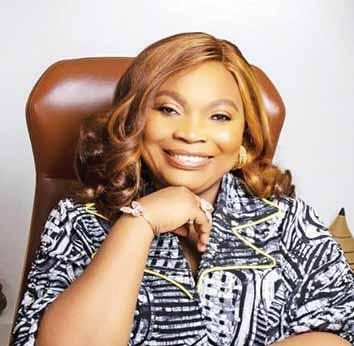
their specific challenges in accessing markets and finance. Together, we created tailored financial productsandmarketlinkagestrategiesthataligned with their aspirations and constraints. As a result, youth-led enterprises are becoming central players in East African agricultural value chains.Oneoftheprograms,theEastAfricaYouthInclusionProject,created33,000newjobsfor25,000 youngpeopleinsixyears.Buildingonthatsuccess, the Stimulating Agribusiness for Youth Employment Project, targeted at the Busoga sub-region ofEasternUganda,iscurrentlyempoweringyoung people (70% of them women and 3% people with disabilities) by improving skills, expanding market accessandofferinginclusivefinancinginkeysectors including poultry, horticulture, oilseed, dairy and beef value chains.
Collaborative Innovation as the Key to Scale ThroughourworkacrossAfrica,wehavelearned that no single innovator, even when the problem seems clear cut, can solve it. Complex challenges require collaborative ecosystems. At Heifer, we increasinglyrecognisethatitisnotenoughtoidentify individual innovators; we must also curate innovation ecosystems where diverse actors can come togethertoco-designsolutions.Thisishowwecan
achieve the scale and impact that we all aspire to. Forinstance,inoneofourprojects,wediscovered that innovators working on agricultural extension services and those developing tractor solutions needed to collaborate to maximise their impact. By bringing these actors together, rather than funding them in isolation, we created synergies that multiplied their collective impact.
Partnershipsareacrucialelementofourstrategy at Heifer. Most of our work leverages individual strengthsofstrategicpartnerstoacceleratescale and sustainable impact. We partner with funders, governments,communitiestoconceptualise,design andimplementprojects;wepartnerwithinnovators to scale technology adaptation and agri-financing; wepartnerwithfarmingcommunities,agripreneurs to scale productivity and profitability, etc.
Our AYuTe NextGen initiative illustrates this philosophybynotonlyprovidingfundingbutactively connectingyouth,particularlysmallholderfarmers among them (the winners), with complementary businesses,globalpeers,technologypartners,and market opportunities.
A Call to Action
TomycolleaguesleadingglobalINGOs,wecannot puttheworldinapictureframeandexpectittostay that way. The unprecedented disruptions we’ve witnessed since 2020 have shattered the illusion of predictability in development work.
We must find the humility to identify passionate partners who we can co-design the future from start to finish. This means relinquishing control and embracing true partnership with local organisations who understand the complexities of their contexts. Success in today’s environment demands humility, flexibility, and a willingness to co-design with local partners.
For local NGOs and enterprises, the way the world is today is an asset to you, not a liability. You are uniquely positioned to lead in times of disruption.Understandingthelocalcontextisyour strength.Yourproximitytothechallengesanddeep understandingoflocalrealitiespositionsyoutolead rather than follow.
Read full Article online - www.thisdaylive.com


Jetour has introduced a new model of Dashing to the Nigerian market and with its unique features, the vehicle is expected to raise the competition in the compact sport utility vehicle (SUV) segment.
The Dashing is a compact SUV known for its blend of modern design, advanced technology, and performance.
The latest version of the vehicle particularly appealing to those seeking a modern and technologically advanced vehicle at an
The Dashing is part of Jetour’s broader portfolio, which includes SUVs and EVs, according to a statement by Jetour Nigeria.
Apart from innovative technology, the Jetour Dashing also has intelligent safety features making it a perfect travel companion.
Panoramic Sunroof
the interior with natural light, creating a sense of lightness and spaciousness, providing a more enjoyable driving experience for all.
Engine
The new Dashing is powered by either a 1.5 or 1.6 litre turbocharged engine mated on four cylinder and 16-Valve Dual Variable Valve Timing (DVVT).
Its other technical features are listed as 145kW output, 290Nm torque, dual clutch auto transmission. Featuring a striking exterior design and
world-class comfort and luxury.
Exterior
It comes as a sleek and aerodynamic shape with a strong front belt, large grille, and smooth LED headlights, all combine to make a statement on the road.
Interior
The new Dashing has a modern and premium aesthetic. Its digital screen makes it easy to navigate the expansive 15.6-inch touchscreen, now equipped with both Android Auto and Apple CarPlay for seamless smartphone integration.
Safety
The vehicle comes with driver and passenger, front and rear seat airbags.
As part of its safety features, it has Automatic Emergency Braking System, Electronic Parking
Brake, Auto Hold System, 360° Surrounding Camera (2D/3D Panoramic Parking), 540° Panoramic Parking Sensor, Lane Departure Warning System, Emergency Braking, Forward/ Backward Collision Warning, Lateral Collision, Blind Spot Detection (BSD)/Door Opening Warning (DOW) system, Auto Lockout System, Automatic Door Lock, Power Window and Alarm System.
8-Surround Hi-Fi speakers
One can receive cinema-like sound with Dashing’s 8-Surround Hi-Fi speakers for ultimate private listening.
Dashing’s digital display is said to provide real-time external environment sensing at a glance.
For maximum comfort and convenience, the vehicle, built with20-inch rim tyre, has features such as Column Gear Shifting System, Remote Start, Smart Entry & Push Start, Drive Modes Selector (Eco, Sport & Normal), Integrated Adaptive Cruise Control, LCD Touch Screen 15.6inch, Phone Mirroring, Apple Play & Android Auto, BT, Intelligent Voice Command, Wireless Charger, Auto Air Conditioner & Rear Vent,
Fast growing Nigerian auto maker, Nord automobile, has presented a new Nord A9 SUV Sports Utility Vehicle (SUV) to the world renowned Chess player, Tunde Onakoya.
Tunde Onakoya had a Nord A7 previously and is the brand ambassador of Nord. He is a prominent Nigerian chess player known for breaking the Guinness World Record for the longest chess marathon, playing for an astonishing 64 hours. He is also the founder of Chess in Slums Africa, a charity that uses chess to educate children in underserved communities. Making the presentation in the company’s showroom located at Lekki area of Lagos state, Nord’s Chairman/CEO, Tobi Ajayi, stated that Nord decided to identify with Tunde Onakoya because he aligns with the culture and vision of the company.
According to him, “We sell intelligent and smart vehicles as well as identify with the Nigerian people, and these we have seen in Tunde Onakoya. He is very smart and intelligent and has traveled to all parts of Nigeria to find talents”.
Recalling the history of the purely Nigerian company he founded only a few years ago, the Nord boss stated that “we started Nord to show Nigerians that they can buy brand new cars without breaking the bank”.
On his part, the world acclaimed Chess player, who referred to the Chairman-CEO of Nord as the Elon Musk of Africa, said his experience with

L-R: World renowned Chess player, Tunde Onakoya, receiving keys to a new Nord A9 SUV from the Chairman/CEO of Nord Automobiles, Mr. Tobi Ajayi, as Nord’s brand Ambassador at the Lekki, Lagos showroom of Nord… recently
the Nord A7, was very refreshing and rewarding.
He stated that the successes recorded by Nord automobiles within a few years of establishment by Tobi Ajayi, has shown that “it is possible to do great things with small things”.
He said, “It has been a very wonderful experience, particularly because it is an indigenous Nigerian brand, it is high time we change the
The starter motor is an essential part of your car’s ignition system, responsible for starting the engine and however, it can develop problems over time, causing issues with starting your vehicle. It’s important to know how to identify and fix these problems to avoid being stranded.
In this guide, we will cover common signs of starter motor issues, explain how to diagnose them, and provide simple troubleshooting techniques to resolve the problems. By understanding and addressing these concerns, you can ensure a smooth and reliable start for your car every time.
What is a starter motor?
A starter motor is an electric motor that starts an internal combustion engine and It does this by converting electrical energy into mechanical energy. The starter motor is usually located in the engine compartment of the vehicle.
How does a car’s starter motor works
The starter motor is responsible for turning the engine over so that it can start. It does this by using a series of gears to create a rotating motion that is then transmitted to the engine. The starter motor is powered by the battery, and when the key is turned to the start position, the starter motor engages and begins to turn the engine.
What are the symptoms of a starter motor problem?
The symptoms of a starter motor problem can vary depending on the severity and cause of the issue. However, some of the most common symptoms of a starter motor problem include:
Vehicle not starting
Vehicle starting slowly
Vehicle starting intermittently
Vehicle clicking or grinding when starting
Battery not holding a charge
If you are experiencing any of these symptoms, it is likely that your starter motor needs to be replaced. Bring your vehicle to a qualified mechanic to have it assessed and repaired.
What are the most common causes of starter motor problems?
There are a few different things that can cause starter motor problems. One of the most common is a worn-out starter solenoid. When this happens, the solenoid won’t be able to create the electrical current necessary to start the engine.
Another common problem is a worn-out starter motor. When this happens, the starter motor won’t be able to generate the necessary amount of torque to turn the engine over.
Finally, a problem with the battery can also cause starter motor problems. If the battery is weak or if there is a problem with the electrical system, it can prevent the starter motor from starting the engine.
How to diagnose starter motor problems
The starter motor is an important component of the engine that helps turn the engine over when you start your car. If your starter motor is not working properly, your car may not start. There are a few things you can do to diagnose starter motor problems.
One thing you can do is to check the battery. If the battery is low or if there is corrosion on the terminals, the starter motor may not be able to turn the engine over. You can test the battery by using a voltmeter.
Another thing you can do is to listen to the starter motor when you try to start the car. If the starter motor is making a grinding noise, it may be indicative of a problem.
Finally, you can take the car to a mechanic to have it checked out. The mechanic can test the starter motor to see if it is functioning properly. If it is not, the mechanic can replace the starter motor.
How to fix starter motor problems
narrative about local talents and their capabilities.”
Tunde Onakoya also relived his experience driving the Nord A7, saying “the first thing is that when people see me drive the car, they are curious about the brand, the logo itself is very distinct. The car announces my arrival in many places, it is very strong to withstand the different Nigeria roads”.
Once you’ve identified the source of the problem, you can start troubleshooting. Here are a few tips: Check the wiring.Make sure that the wires are connected properly and that there is no damage to the connector.
2. Check the battery.Make sure that the battery is fully charged and that there is no corrosion on the terminals.
DAILY INDEPENDENT Online
of April 13 committed mul-
tifarious offences: “Fatai on the hospital bed….” Tribute: Fatai in the hospital bed
“The bill has stirred quite a lot of controversy (controversies).”
“…is against the spirit and letters of the Nigerian 1999 Constitution….” My view: either the spirit of the law or the letter of the law (the Nigerian 1999 Constitution)
“The commissioning (please use other verbs—this has become a cliché) of the ultra-modern building complex….”
Yet another oddity: “The Plateau State Polytechnic, Barkin-Ladi, on Friday matriculated 4,800 new students admitted into various courses for the 2025/2026 academic session.” Posers: Do old (returning) students matriculate? And this: admission into various courses! Would they all have read the same course? This way: …matriculated 4,800 (students) for the 2025/2026 session. Of course, it has to be academic!
“Fire outbreak averted in hostel” Campus News: Fire averted in hostel—without descriptive (adjectival) magnitude
“Pan African (Pan-African) varsity commences operation in Nigeria”
“Effect of security in socio economic development in Nigeria” A rewrite: Effect of insecurity on (not in) socio-economic (take note) development in Nigeria
Still on the introductory medium: “Global investments in renewable energy drops (why?) by….”
“NUJ condemns police intolerance to (of) media”
“…just as the service would be opened (open) to any brand or model of handset.”
Finally from Daily Independent Back Page: “…they are in every strata (stratum) of society….” And, of course: all strata/stratums.
“FG approves border free (borderfree) trade zone for Borno”
Last week’s muddle: “Jos, the capital of Plateau State (another comma) is one of the few cosmopolitan towns in the country that has (has) enjoyed peaceful co-existence relatively.” Get it right: Jos…one of the towns that have—not has!—enjoyed peaceful co-existence relatively. Instead of bracketing ‘have,’ the columnist put ‘has’ in parentheses! What a morphological tragedy! Please, accept my apologies.
More contributions to last week’s edition: ‘Followership’ has been in existence since 1928. Also, ‘witch-hunt’ is both a noun and an adjective. Source: Word Book Dictionary and Webster’s New Encyclopedic Dictionary. It is also listed in Oxford Dictionary of Current English. This columnist notes that most dictionaries and reference books, like the 2012 Longman Advanced Dictionary of Contemporary English and Roget’s Thesaurus, do not, however, list the contentious word.
‘Finger bowl’ is different from ‘wash-hand basin.’ The former is the plastic moved around for washing of hands, while the latter is usually affixed on a wall or metallic contraptions. (Intervention by Sunny Agbontaen/08055162531)
“Moro, who had exonerated the Interior Ministry of capability (culpability) while in office, revealed….” (Vanguard, April 9) Yet another input from a fan
of this column “…some NWC members are urging the leadership of the party to exercise refrain (restraint) in further suspending the governors.” All well-informed readers are free to contribute to this column, too. The essence is to exchange robust ideas on the English language.
“Interior Minister swears in immigration boss, third on (in) the saddle”
The Guardian of April 11 offered its esteemed readers a school-boy howler: “Had the said term been imposed in (on) any of those corruption cases involving public office holders, ears would not have tingled in the least.”
“Samsung Galaxy Reach for the Star contest all expense paid trip to Dubai for 10” (10 x 5 advertisement by Samsung, THE GUARDIAN) Get it right: all-expenses-paid trip!
Daily Trust disseminated advertorial and editorial gaffes: “Introducing Fidelity Managed SMEs….” (Full-page advertisement by Fidelity Bank PLC) We keep our word: what about Fidelity-managed SMEs?
“…road traffic accidents and transport related crimes and criminalities.” Not new: transport-related crimes and criminalities.
“…patients at LUTH are being turned down for shortage of bed space (spaces).”
“FG to pay-off (pay off) PHCN casual staff”
“The Presidential Committee on Flood Relief and Rehabilitation expresses its profound gratitude and appreciation to all who answered the clarion call to be our brother’s keepers through….” For the attention of the Office of the Secretary to the Government of the Federation: brother’s keeper (fixed expression irrespective of number)!
“This appointment is well deserved, an
In the quiet energy of a classroom at the Nigerian Institute of Journalism, the idea seemed harmless - a brief moment of introspection in a long day of media training. Yet, beneath the chalk-stained surface of that moment was the residue of years of exasperation, a slow-boiling dissatisfaction with the state of the media industry in Nigeria.
Standing before a class of fledgling journalists at the Nigerian Institute of Journalism (NIJ), I am often seized by a quiet irony. Here I am, guiding eager minds through the maze of media ethics and craft, while grappling with the same fog in my own professional field. It is a strange burden - instructing others to hold up the torch of integrity in a landscape where the flame has long flickered, if not fizzled out entirely.
Yet, behind my encouraging tone was a gnawing realisation - that our industry had become a loud market of half-truths, hurried opinions, and superficial convictions. I had spent almost four decades in print (mostly), radio, and television, searching for an ideal, a core of excellence. But the more I taught, the more I confronted the truth: we were losing grip of the soul of media practice.
By mid-2023, the embers of an old idea found new oxygen. I started touching bases with old comrades - folks who shared the same lamentations, whose frustration had not yet calcified into cynicism. We called it the Media Integrity Initiative Africa (MIIA) - a bold, some would say quixotic, campaign to arrest the rot at the roots. We issued formal invites to about 35 media professionals across the spectrum. Honestly, as earlier stated, we expected maybe 10, 12 at best to climb aboard.
We were pleasantly stunned to receive 20 positive responses - all of them enthusiastic, committed, ready to build. Here’s the esteemed roll call of MIIA Board of Facilitators: Lanre Ìdòwú - Former
Reporter (Daily Times/Guardian), Assistant Editor (Democrat), Editor (Thisweek), E-in-C (Media Review), Founder (Diamond Awards for Media Excellence), etc.; Tokunbo Ojekunle - Former Director of Marketing (Eko FM), Ex-GM (Max FM), Lagos; Richard Akinnola - Veteran Judiciary Reporter/Editor (Vanguard), Lawyer, Publisher/Editor (Courtroom), Executive Director (Media Law Centre); Ohi Alegbe - Former Dep. Editor (African Concord), ex-Associate Director (Quadrant Company), ex-GGM - Public Affairs (NNPC), CEO (Quest Comms); Tony Onyima, PhD, fNGE - Former MD/E-in-C (Sun Newspapers), ex-Commissìoner for Information, Culture & Tourism, Anambra State; Adeboye Ola, PhD - Veteran Photojournalist, Deputy Provost (Nigerian Institute of Journalism); Azubuike Ishiekwene - Former Editor/ ED (Punch), Founder/Director (The Interview), Snr Vice Chairman/E-in-C (Leadership); Lekan Otufodunrinex-Punch Political Editor, Managing Editor (Nation), Founder (Journalists for Christ), Executive Director (Media Career Development Network); Alex Ogundadegbe - ex-Entertainment Editor (Punch), Editor (The Week), Certified Trainer (HRM, Customer Service, etc); and Yakubu Lawalex-Energy Editor (Guardian), former SA Media (to two Power Ministers), Chairman of Society of Energy Editors, etc.
Others are as follows: Johnson Onime - ex-ED (Corporate & Public Affairs - Daar Comms), Principal Consultant (Intense Concepts & Associates Ltd.); Olumide Iyanda - Former Editor (Independent on Saturday), Founder/E-in-C (QED - Mighty Media); Fisayo Soyombo - Founder (Foundation for Investigative Journalism); Oluyinka Shokunbi - Veteran Health

attestation of (to) the transformation you have ignited in the Nigerian youth….” “I believe such road (such a road) with large number (a large number) of vehicles….”
Finally from THISDAY: “Wada: Fulani herdsmen, farmers clash major security challenge” News extra: …farmers’ clash, major security challenge
Last week’s edition of this medium committed a few blunders starting from its front page: “Govs in fresh gang up against Tukur” Truth in defence of freedom: gang-up
“Community hails Otti for commissioning (inaugurating) market”
Now the inside pages: “Majority (A majority) of the members of the House of Representatives seeking to make….”
“…people from the North who alleged that they had a talk with him with regards to 2027.” The Sunday Interview: with regard to or as regards
“…which is one of the fallouts of the daily traffic jam.” Life: ‘fallout’ is uncountable.
Finally from the business section of THE NATION ON SUNDAY under review: “While some of the funds have been diverted to other uses….” Away from commercialese: ‘Diversion’ means to other uses other than the original purpose/intent. So, ‘diversion to other uses’ is sheer verbosity and smacks of half-literacy!
“NAMA recalls VIP’s already airborne chopper” If a helicopter is airborne, it is airborne—there is no need for ‘already’! The last headline rape this week is from one of the leading newspapers in the north, Leadership, April 8: “Navy personnel ups (up) the ante in weapon handling, marksmanship”
Reporter, President of the Network of Reproductive Health Journalists of Nigeria; Seun Olagunju - ex-GM (Raypower, Abuja); News Anchor (NTA); GM - Public Affairs (TCN) - now Group Head, Strategic Comms (Bank of Industry); Monday Michaels Ashibogwu, PhD - ex-CEO/E-in-C (Quick News Africa), ex-MD/CEO (The Republic Media); GMD (Billsbox Services); Deji Balogun - ex-GM (LTV), ex-Abuja Station Manager (Channels Television); Michael Effiong James – Former Society Editor (Fame Weekly), ex-Editor (Encomium), Editor/COO (Ovation Media Group); Marcel Okeke - ex-Editor (Business Concord), ex-Business Editor (Punch), former Chief Economist (Zenith Bank), Lead Consultant/ CEO (Mascot Consult); and last but certainly not the least, Lanre Arogundade - Veteran Journalist, ex- NANS president, ex-Chairman (Lagos NUJ), ex-Editor (Republic), ex-Feature Editor (National Concord), Executive Director (International Press Centre).
But every big dream comes with its own chaos. We decided the training would be completely free - no registration fees, no hidden costs. During the live trainings, the real test began. We had almost 200 in multiple WhatsApp broadcast lists; and over 150 participants in a dedicated WhatsApp group, attempting to interface with the Google Meet platform. Admission to the sessions became a full-time task.
As the coordinator, I had to make sure the data bundles were topped, the generator fuelled, the backup slides ready in case a facilitator glitched. The two Saturdays were four hours long - non-stop facilitation, moderation, link-sharing, emergency tech support, and motivational nudging. In between, I would chase down facilitators for module updates, prepare pre-class teasers, and troubleshoot participants’ woes. I became MC, counsellor, timekeeper, and fire-fighter rolled into one. Still, burnout hovered like a mosquito in a dark room - unseen, persistent, maddening.

fajalive1@gmail.com
08033622806- (SMS Only)
The integrity we craved to uphold in the media ecosystem demanded that we first model it internally. We pushed for accountability - even among ourselves. When there were lapses, we addressed them firmly, without rancour. Where a facilitator would have missed a slot, we improvis ed. When participants grumbled, we listened. It was not perfect, but it was sincere. It was not seamless, but it was significant.
As the curtain fell on the inaugural cohort, something shifted. The participants, many of whom had never met us in person, began calling MIIA their professional family. We received testimonials filled with gratitude, surprise, and newfound resolve. Suddenly, the long nights and weary Saturdays felt lighter. To cap it all, we issued a post-class digital “Certificate of Participation” to about 60 active participants - a gesture that drew widespread admiration. Many recipients were ‘whaohed’ by its professional design, prompt delivery, and the validation it represented after weeks of effort. It wasn’t just a PDF; it was proof that they had journeyed through something valuable - and finished it.
Media integrity, it turns out, is not a sprint. It is a grind - slow, stubborn, and sacrificial. You lose sleep. You lose data. You sometimes lose faith. But you gain something else - the quiet conviction that excellence is still possible, even in a world determined to water it down.
MIIA has only just begun. The second cohort looms. And with it, the old fears - of bandwidth, burnout, and bewilderment. But we will return, because what is worth doing - however burdensome - is worth repeating. This is what happens when excellence becomes a burden. And still, you carry it.


InspiteofputtingupastellarperformancesincehismovetoTurkey,returningtoEngland andplayinginthePremierLeaguehasalwaysbeenhisdream.But,meetinghishuge salarycoupledwithFenerbahçe’shighhandednesshasbeenastumblingblocktohis Englandmove.However,withCrystalPalaceofferofafour-yearcontractwithayearly salaryof€4.5m,BrightOsayi-SamuelishopingtoplayatSelhurstParknextseason
With Crystal Palace set to lose captain Marc Guehi this summer, a new central defender will be needed. But there is also a desire to add depth at full-back, especially as FA Cup success would ensure that Europa League football is played at Selhurst Park in the 2025-26 season.
Daniel Munoz is the undisputed starter at right wing-back for Crystal Palace Manager, Oliver Glasner, with his current backup being Nathaniel Clyne. But the former Liverpool player looks set to depart in the summer, with his contract expiring at the end of June. And as such, an upgrade is being courted.
Crystal Palace have already identified their top target for this need, and a deal is said to be close to completion.
As reported by Fotomac (via SportWitness), Crystal Palace are close to agreeing a pre-contract with Bright Osayi-Samuel, who sees his Fenerbahce deal expire at the end of the season. The 27-year-old has also attracted the attention of Leeds, but it is very much the FA Cup finalists that are favourites to secure his signature.
According to the report, Crystal Palace have been in talks with Osayi-Samuel’s representatives for some time, and a four-year contract offer is already on the table, with a yearly salary of €4.5m having been proposed.
Osayi-Samuel has played 33 times for Fenerbahce this season, so his departure would be a loss for the Turkish giants. But in the same breath, it would be a gain for Crystal Palace as he would be a valuable addition to Glasner’s squad.
Crystal Palace have made an ambitious approach to sign the Nigerian international on a free transfer this summer, offering the Fenerbahce full-back a lucrative four-year deal.
The 27-year-old Super Eagles defender is set to become a free agent on July 1, when his current contract with the Turkish giants expires.
According to Motorcycle Sports, Palace have tabled a €4.5 million-peryear proposal to lure the right-back to Selhurst Park, a significant pay rise from his current €3 million annual salary at Fenerbahce.
Palace manager, Oliver Glasner is understood to be driving the push to bring Osayi-Samuel back to England, with the Eagles aiming to reinforce their defensive options ahead of the new Premier League season.
Talks are still in the early stages, but negotiations are said to be progressing well, with the club quietly confident they can seal the deal.Osayi-Samuel has been a consistent performer for Fenerbahce since his move from QPR in 2021, impressing with his pace, energy, and attacking threat from deep. His form in Turkey has not gone unnoticed, attracting interest from several European clubs.
The Okija-born defender is no stranger to

English football, having previously played for Blackpool and QPR before heading to the Süper Lig. Palace believe his Premier League readiness and international experience with Nigeria make him an ideal fit for Glasner’s system.
Osayi-Samuel has previously been linked with several English clubs including Wolves and Leeds United.
Now, Crystal Palace are hoping to succeed where others have faltered, and land the player without a transfer fee.
With the summer window fast approaching, the Eagles are poised to make Osayi-Samuel one of their marquee signings. But will their offer be enough to convince him to return to London?
Osayi-Samuel moved to Fenerbahce from Queens Park Rangers in January 2021, and has since made 172 appearances for the Istanbul club, recording seven goals and 15 assists.
On the international stage, he was a member of the Super Eagles squad that finished second in the 2023 Africa Cup of Nations in Ivory Coast, where he played five matches.
Osayi-Samuel is said to have sent a message about his availability to his Premier League suitors after rejecting a new deal from Fernabahce, but the Yellow Canaries have been trying to tie the former Queens Park Rangers defender to a new deal, but so far, an agreement between both parties are worlds apart.
According to Turkish outlet, Fanatik, Osayi-Samuel has rejected Fernabahce’s new contract offer of a net salary worth €2.5m per annum with both parties said
to be €1m away from an agreement and if the former Blackpool doesn’t get the offer he wants, he will leave when his contract runs out next summer.
After a stellar 2023/24 season with Turkish giants, Fenerbahce, OsayiSamuel seems to have won the heart of manager, Jose Mourinho, but returning to England has always been a dream for the Super Eagles defender.
Despite being fans’ favourite for his impressive form since joining Fenerbahçe, Osayi-Samuel has never hidden his desire to return to England.
Strong, quick, and athletic, OsayiSamuel looks like the modern-day full-back/wing-back, but it was not until two years ago that the 27-year-old made his first appearance for the Super Eagles on November 17, playing 90 minutes in a pre-tournament friendly against Portugal who, unlike Nigeria, were then preparing to play in the World Cup.
There’s no gainsaying that as a right-back, Osayi-Samuel has got a lot in his arsenal, and these footballing abilities are no surprise to those who had watched and followed his career trajectory from his time at Blackpool and Queens Park Rangers.
The Nigeria international started his career as a pure winger who delighted in taking on his markers with his pace, trickery, and guile; little wonder his style of play as a full-back is quite reminiscent of Victor Moses in Antonio Conte’s 2016/17 English Premier League-winning squad.
Born in Okija, Nigeria, Osayi-Samuel
moved to Spain at an early age before emigrating to England at 10 years of age. A product of the Blackpool academy, he broke into the first team as a teenager in 2015, playing primarily as a winger across League One, League Two and very briefly in the championship before securing a move to Championship mainstays, Queen Park Rangers in September 2017. Osayi-Samuel’s ability to dribble, create and pose a threat to opposition defences was never in doubt but the numbers have hardly been really outstanding in terms of goals and assists for the Fenerbaçhe man.
His first full season was also not very remarkable as he was only able to manage two goals and five assists in 43 appearances across all competitions. Though, the arrival of Portuguese manager, Vítor Pereira at Fenerbaçhe in the summer of 2021 occasioned a formation change to a 3-4-3 for the Turkish club with Osayi-Samuel being one of those affected by this tweak, as he was made to be the right wing-back in Pereira’s new set-up.
“That’s not usually my position; I’ve been an out-and-out winger. He wanted me to come back as a full-back when we didn’t have the ball. He started teaching me the basics of defending, and from there I started playing as a wing-back,” Osayi-Samuel said in an interview.
It remains to be seen whether this deal with Crystal Palace gets over the line, but it appears that there is a very good chance of that happening.

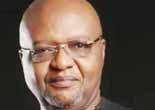
The pretence persists, does it not? That there is some real political opposition in the country today. The Peoples Democratic Party (PDP) has so far been prancing all over the place, since it lost out in the power game about ten years ago, and loudly claiming to be “the main opposition party” in Nigeria. This situation of opposition by self-proclamation is yet to translate into any meaningful template that can pass muster as intelligent and organized political opposition in a 21st Century world. Ten years since it was ousted from the seat of power it, the party has been progressively strengthening its growing reputation as the Guardian of a Barren Territory and the custodian of a non-existent
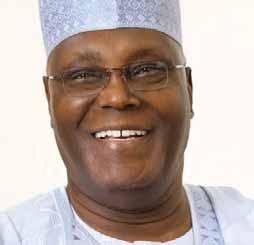
territory.
So, come, let us go back in time
to what was said about the PDP on this page, on August 7, 2020, can be reaffirmed today. On that occasion it was said here: “There is a strong rumour in town, as I write. Propagators of this rumour believe themselves to be stating a fact of our general experience, when they make certain statements about the PDP. This “dangerous” rumour, which initially gained currency because the party came second in the elections, has to do with the claim, mostly by the party itself and some media reports, that the PDP is the major platform for opposition politics in Nigeria today. This is altogether absurd, if we are to take political opposition seriously”.
We say here, today, five years after the above submission, that we must make a distinction between a set of
angry people, all of them convinced that a lot is wrong with the country, and an organized political opposition with demonstrated capacity for effective interventions in the political space. An opposition party must first keep its house in order, and this is something the PDP is not doing. A serious opposition party should also be in control of its own gates and determine the Rules of Engagement for all movements into and out of its premises. The party is remiss in that regard, and has been for a long time now.
Just look at the PDP today. Its governors are not doing much better than anyone else. Its party primaries, before and after it lost power at the
Continued on page 27

Nigeria’s Federal Executive Council (FEC) rose from its meeting this week and announced the approval of the ‘Renewed Hope Nigeria First Policy.’ The new policy, whose framework is still being worked out, seeks to strengthen Nigeria’s domestic economy and promote local content.
The policy, expected to become effective as soon as the Executive Order is signed by President Bola Tinubu, mirrors President Donald Trump’s ‘America First,’ that is characterised by tariffs and protectionist measures that have since prompted countries to re-evaluate and reshape their
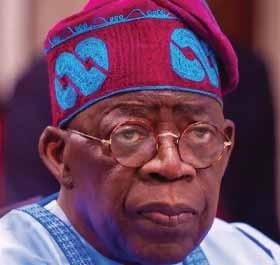
government hopes to drive job creation, industrial growth, and sustainable economic development.
The policy also seeks to foster a new business culture that is bold, confident, and very Nigerian. It aims at making government investment directly benefit our people and industries by changing how we spend, how we procure, and how we build our economy.
Information and National Orientation Minister, Mohammed Idris, described the policy as a bold shift in the country’s economic approach.
import. Now, this is in the form of an executive bill that will soon be issued by Mr. President. Already, Council has approved a set of those proposals and the Office of the Federal Attorney General of the Federation has been directed to prepare an executive order to be issued by Mr. President.
“This seeks to foster a new business culture that will be bold, confident, but also very, very Nigerian, and it aims at making government to invest in our people and our industries by changing how government spends money, how we procure and how we also will build our economy,” he explained. international trade strategies. By making local content central to government spending, the federal
“If there are any businesses to be done by anybody, the priority will be Nigeria first of all, if you have any local content, there is no reason for you to go outside this country to